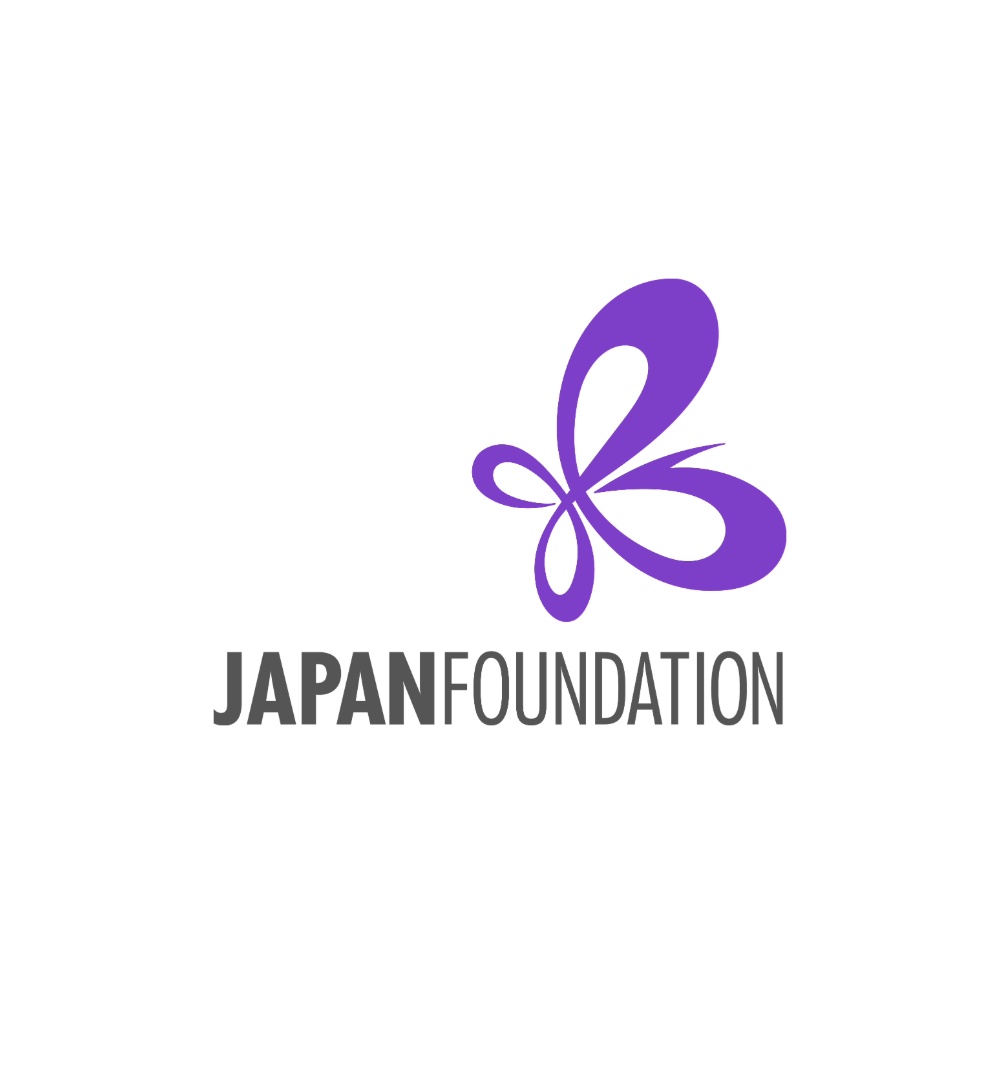The Indo-Pacific Cooperation Network is a unique cross-national network established by the AIIA and the Japan Foundation. In 2023 and 2024, emerging leaders in their field were selected from more than 12 countries in both years to examine disaster resilience policies and initiatives through study tours to Japan, Australia, Fiji, Tonga, and New Zealand. Read their life stories below.
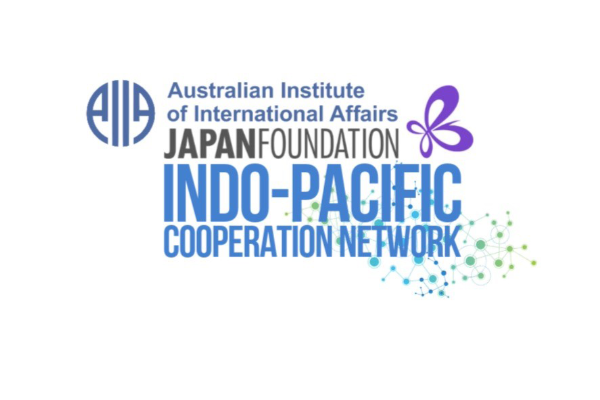
2026
The third cohort of the Indo-Pacific Cooperation Network will travel to Japan in March 2026, as well as Fiji and New Zealand in June 2026, and will join the AIIA National Conference before a study tour in Australia late in the year
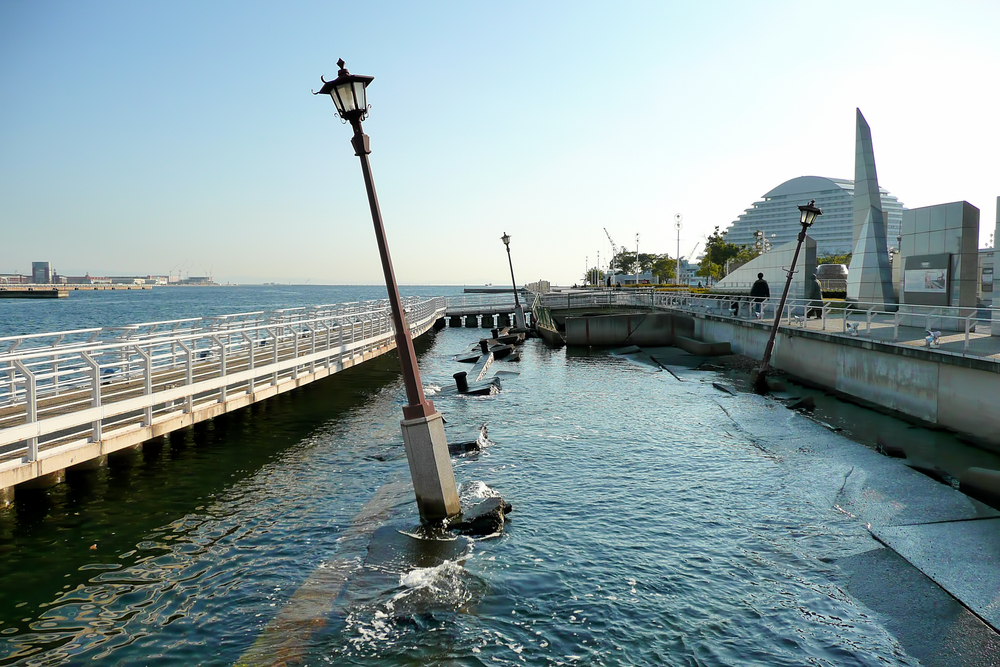
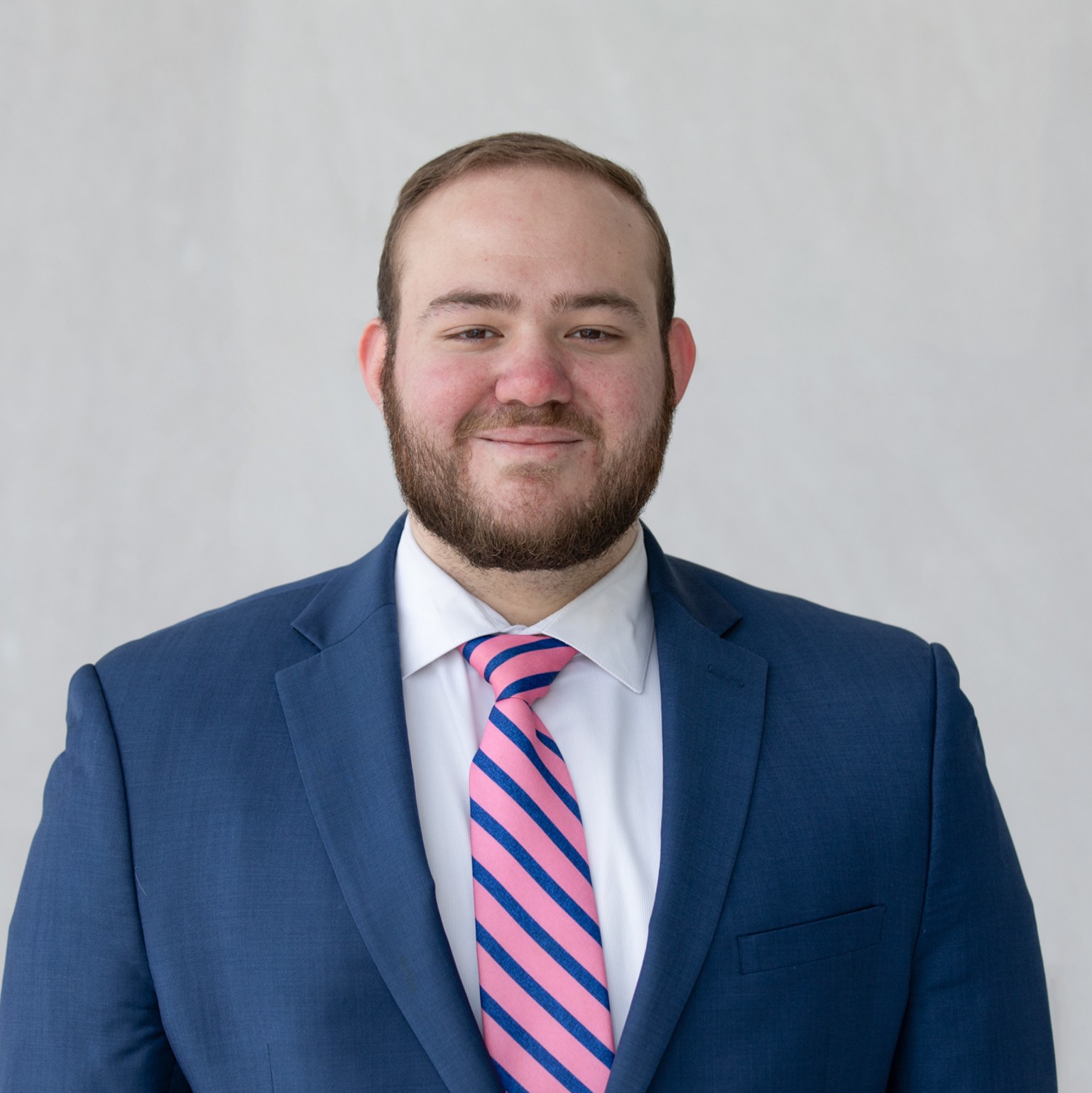
John Augé

John Augé
John Augé is the Program Manager for the Australia Chair at the Center for Strategic and International Studies (CSIS), where he manages initiatives related to United States–Australia relations, as well as security and climate change in the Indo-Pacific. He is a co-host of Pacific Airwaves, CSIS’ podcast on the Pacific Islands.
Prior to joining CSIS, John worked at the White House Council on Environmental Quality, the U.S.–Pacific Institute for Rising Leaders at the Johns Hopkins School of Advanced International Studies, and the Tuvalu Climate Action Network. He has participated in climate conferences across the Pacific and internationally, including the United Nations Framework Convention on Climate Change Conference of the Parties. He has been published in The Diplomat, writing on issues related to the Pacific Islands.
He holds a Master of Arts in International Relations from the Johns Hopkins School of Advanced International Studies and a Bachelor of Arts in International Business and Finance from North Central College.
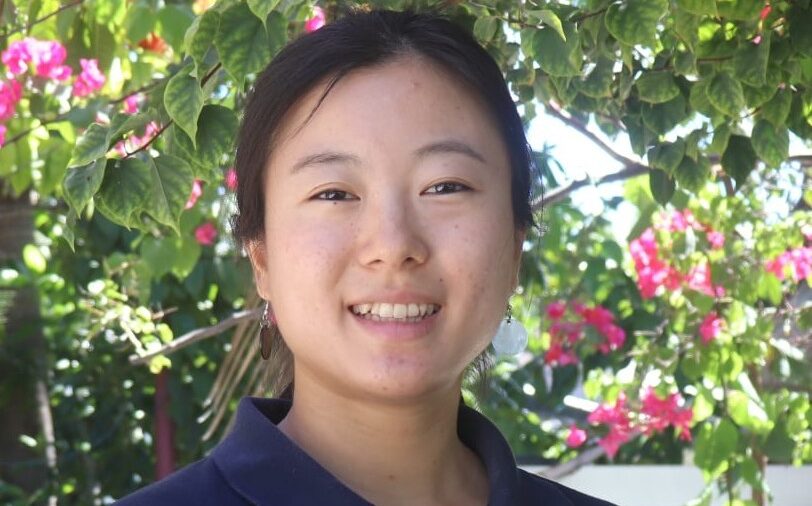
Naho Chujo

Naho Chujo
Naho Chujo is a WASH Officer for Climate Change with UNICEF Pacific, supporting water, sanitation and hygiene (WASH), resilience and preparedness programming in Kiribati. She leads drought preparedness initiatives for outer islands, supports climate-resilient WASH systems in schools and healthcare facilities, and contributes to national policy efforts, including menstrual health and hygiene strengthening. Her work involves close collaboration with ministries, United Nations partners and community stakeholders to deliver inclusive, sustainable WASH services in one of the world’s most climate-vulnerable contexts.
Prior to working in Kiribati, Naho gained international experience in climate-resilient and environmental research and WASH across Nepal, Palestine, Brazil and Germany. She has worked across research, development and operational settings to support sustainable and resilient water services.
She holds a Bachelor of Science in Resources and Environmental Engineering from Waseda University and a Master of Science in Water Resources Engineering and Management from the Universität Stuttgart.
She is dedicated to advancing equitable, climate-resilient WASH services through evidence-based and locally led approaches.
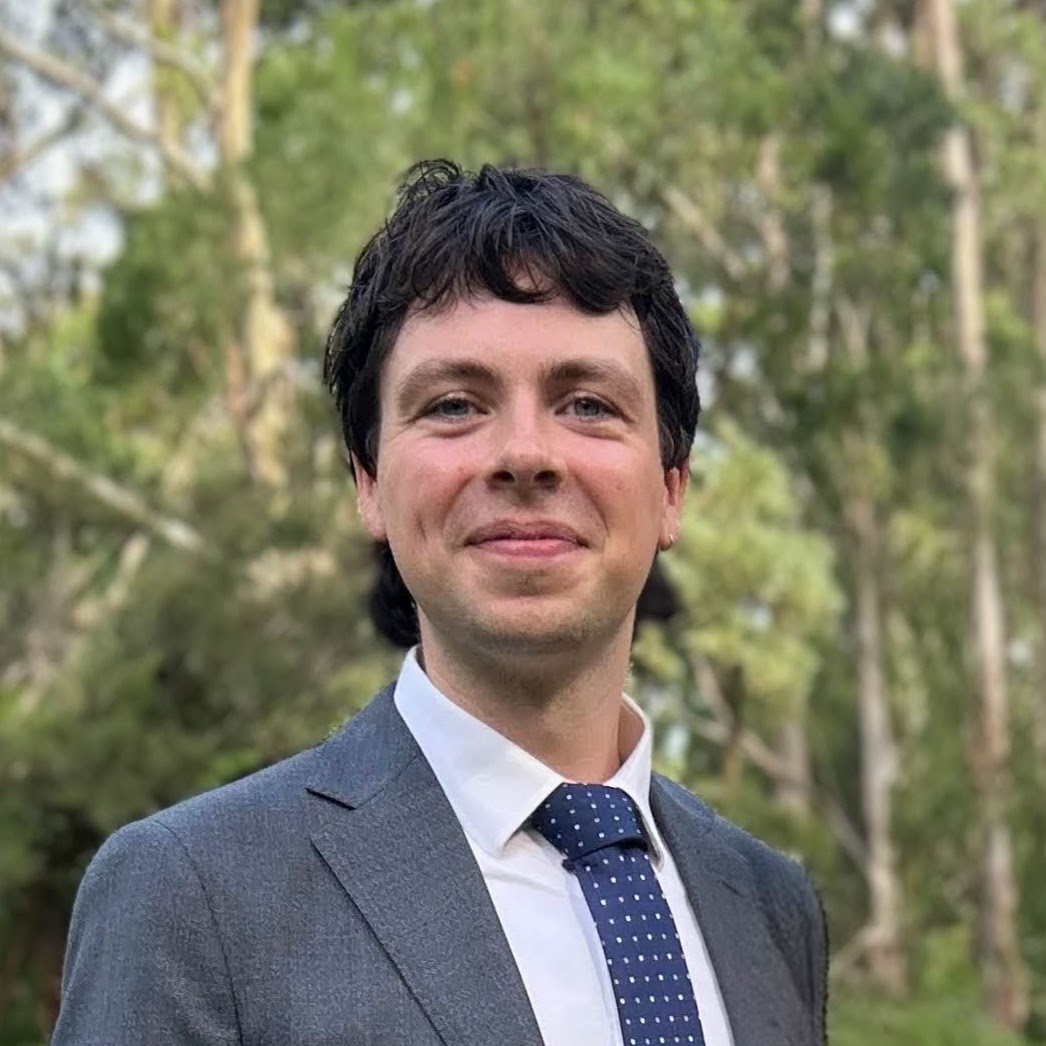
Liam Clapp

Liam Clapp
Liam Clapp is a Senior Policy Officer at the Department of Climate Change, Energy, the Environment and Water. He works on Australia’s bilateral climate and energy relationships with key partners across the Indo-Pacific region.
Previously, Liam has worked within the department in environmental regulatory roles and across local government in climate and community resilience program delivery roles.
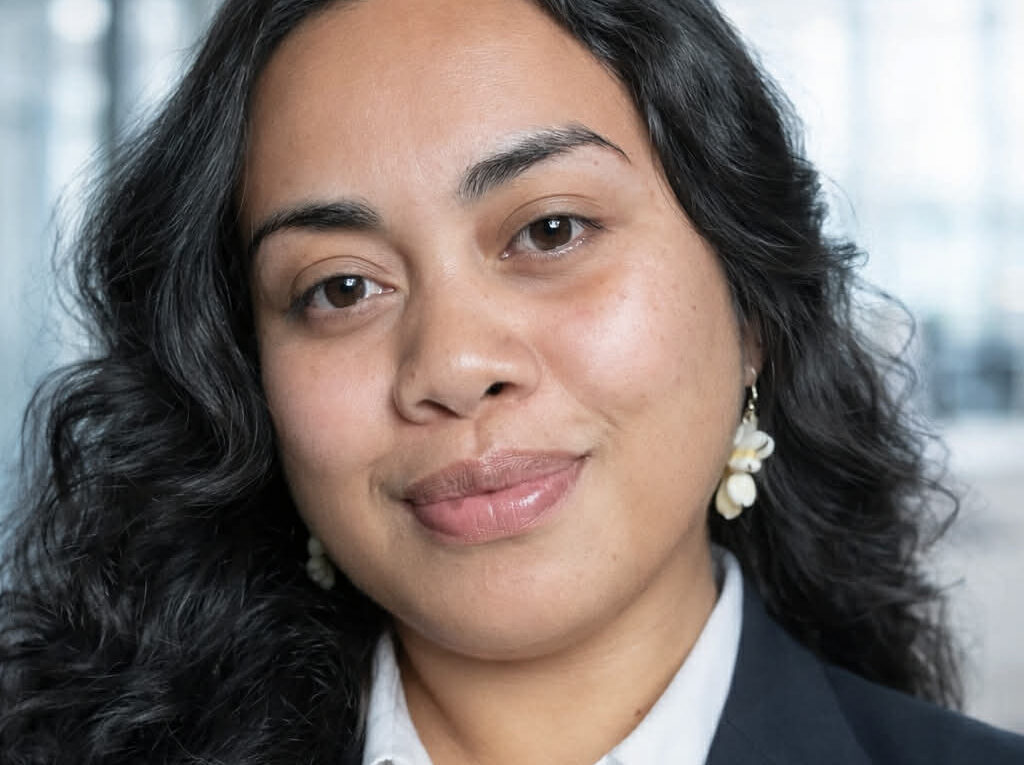
Kawaii Deiye

Kawaii Deiye
Kawaii Deiye is a development and policy professional with experience in climate change, energy and governance. She has worked across project management, human resources and stakeholder engagement in both government and development contexts.
Kawaii has been actively involved in international leadership programs, climate negotiations and energy-related conferences, where she has contributed to policy support, coordination and implementation of development initiatives.
With a strong focus on sustainable development and institutional capacity building, Kawaii brings a practical, solutions-oriented approach to her work. She is particularly committed to advancing climate resilience, effective governance and inclusive development outcomes for Small Island Developing States such as Nauru.
She holds a Bachelor’s degree in International Business and Trade.
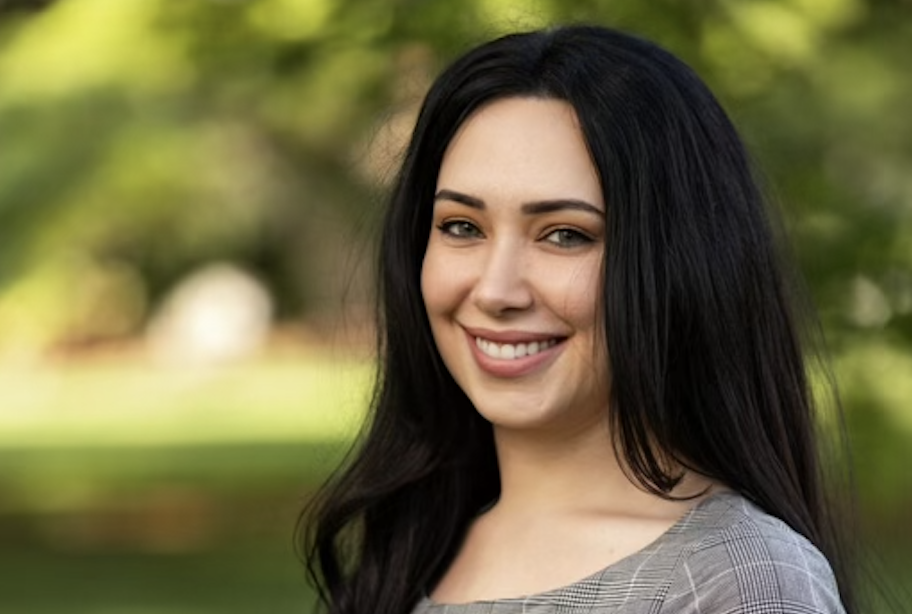
Kia Devine

Kia Devine
Kia Devine is a proud Larrakia woman from Darwin, Northern Territory, with a strong commitment to advancing Indigenous economic participation and international cooperation across the Indo-Pacific. As a Senior Indigenous Business Officer, Kia supports Indigenous-owned businesses to access national procurement and international opportunities.
In her previous role as a Policy Analyst at Equity Economics, she worked on key Indigenous domestic and international projects, including the Victorian Aboriginal Authority, NACCHO’s National Funding Agreement Review, the Inclusive Growth Strategy for Papua New Guinea, and Timor-Leste Economic Diversification Pathways.
She is an alumna of the United States’ Australian Youth Advisory Council and was awarded the 2023 Australian Volunteers Impact Fund for the Tanzanian organisation she volunteered with.
With a background in law, policy and community engagement, Kia brings a cross-sector understanding of governance, resilience and regional collaboration. She is passionate about creating a resilient, sustainable and prepared society that incorporates learnings from across the Indo-Pacific to address climate change and broader societal challenges that affect quality of life.
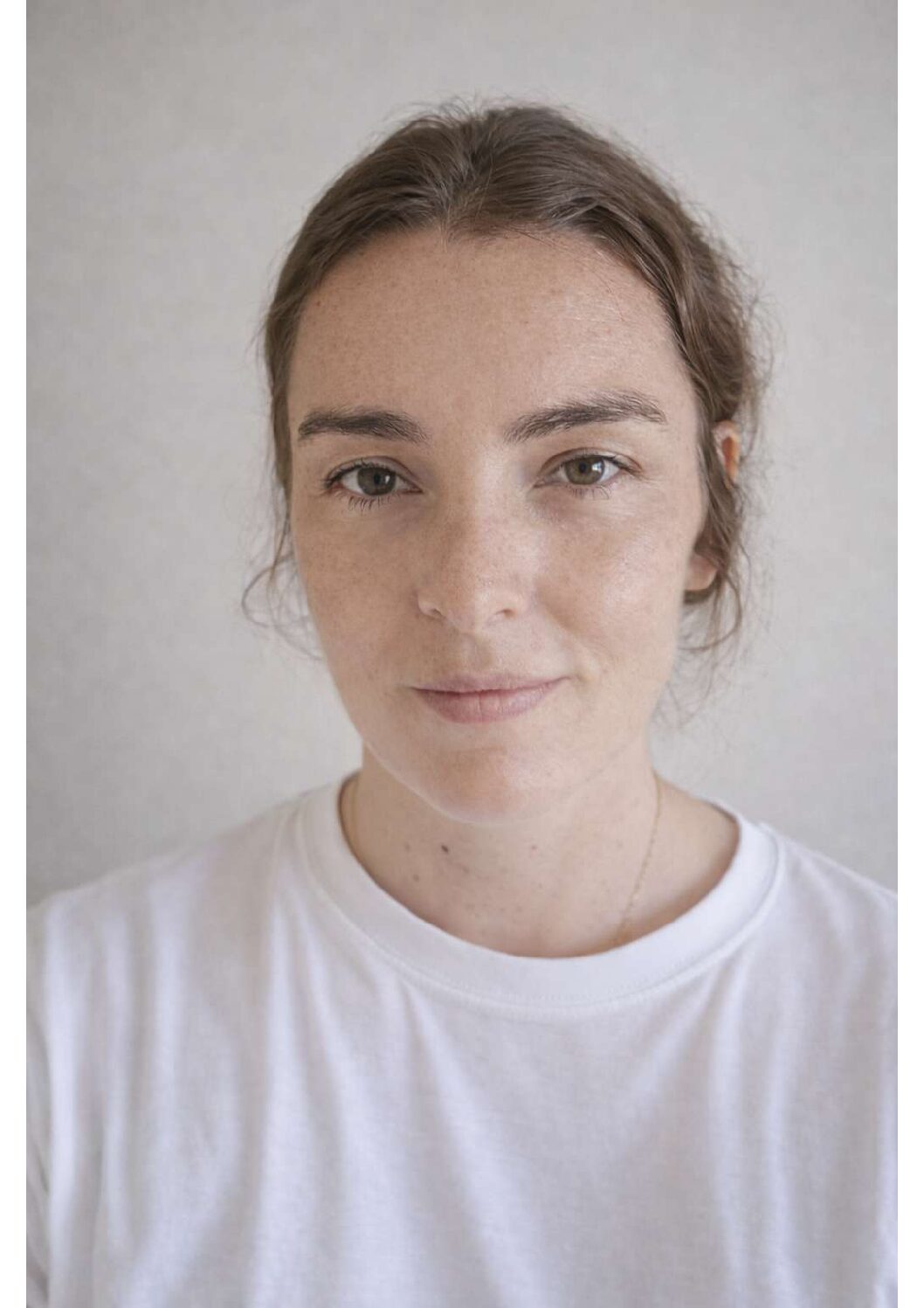
Noa Dumond

Noa Dumond
Noa Dumond is a Disaster Preparedness and Response Officer with the French Red Cross platform for the Pacific, based in New Caledonia. Her work focuses on disaster preparedness, emergency response and regional coordination across the South Pacific, in close partnership with national authorities, humanitarian actors and communities.
She has experience supporting government-led emergency response, including with the National Disaster Management Office of Vanuatu, and has contributed to preparedness planning, risk monitoring, civil–military coordination and capacity building. Her work places a strong emphasis on locally led approaches that strengthen existing systems.
She holds a Master’s degree in Crisis and Security Management from Leiden University and a Bachelor’s degree in Political Science and International Relations from the University of Melbourne.
She is particularly interested in disaster risk reduction and the intersection between humanitarian action, policy and diplomacy in the Pacific.
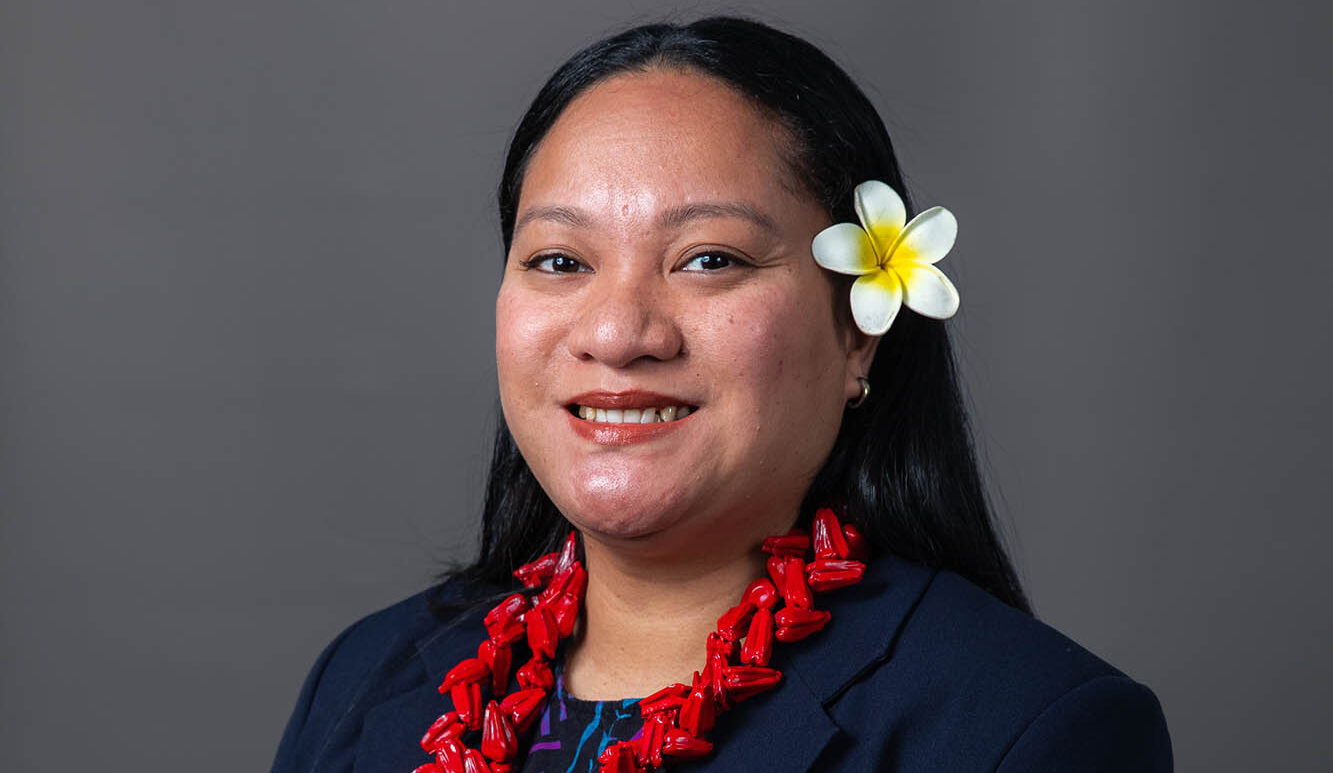
Grace Fiavaai

Grace Fiavaai
Grace Fiavaai is a New Zealand-based Pacific journalist and documentary storyteller. Fluent in Samoan, her reporting centres on Samoan politics, Pacific regional issues and stories grounded in lived Pacific experience. She has broken major political stories about Samoa and has participated in two Pacific Island missions, gaining first-hand insight into governance, leadership and community life across the region.
Grace has paternal links to Niue, Tonga and China, and spent part of her childhood in Jamaica, where her parents were missionaries with the EFKS Church. These experiences continue to shape her global outlook and storytelling lens. Prior to journalism, she worked as a flight attendant and continues to serve as a youth leader, strengthening her ability to connect across cultures and generations. In 2024, she became the first Pacific journalist to be named a finalist at the New Zealand Science Media Awards.
Widely known as Mama G, she is passionate about breaking stigma for Pacific women in media and telling stories that are honest, culturally grounded and accessible. Outside the newsroom, she is a full-time working mother of two, a self-confessed foodie and sports lover, known for her humour, warmth and down-to-earth approach.
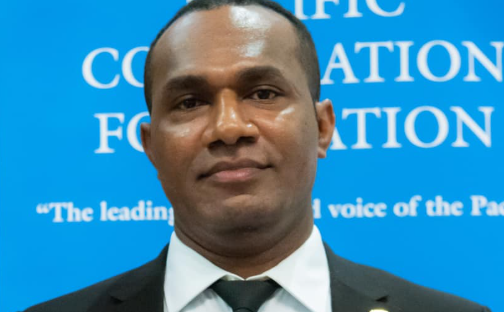
Gibson Gala

Gibson Gala
Gibson Gala is a seasoned humanitarian and development professional with extensive experience leading climate and disaster risk financing, rural development and resilience-building initiatives across the Pacific region. With more than a decade of technical, analytical and program leadership experience, he has supported governments, international organisations and communities to strengthen resilience to climate change, natural hazards and socio-economic vulnerabilities.
He has “held senior roles with international organization, where he managed major humanitarian and development programs, including anticipatory action, cash transfer mechanisms, emergency response and climate-resilient education initiatives.
Previously, he served in a range of senior and technical roles across the Pacific, including with GIZ, the Global Shield Initiative, UNDP, Northern Environmental Solutions, the World Bank, the International Organization for Migration, ADRA, the World Food Programme, WHO and the Global Green Growth Institute. His work has spanned blue carbon, environmental conservation, emergency response, climate and disaster risk financing, renewable energy, rural electrification, community resilience and environmental management.
He holds a Master’s degree in Disaster Risk and Resilience from the University of Canterbury, New Zealand.
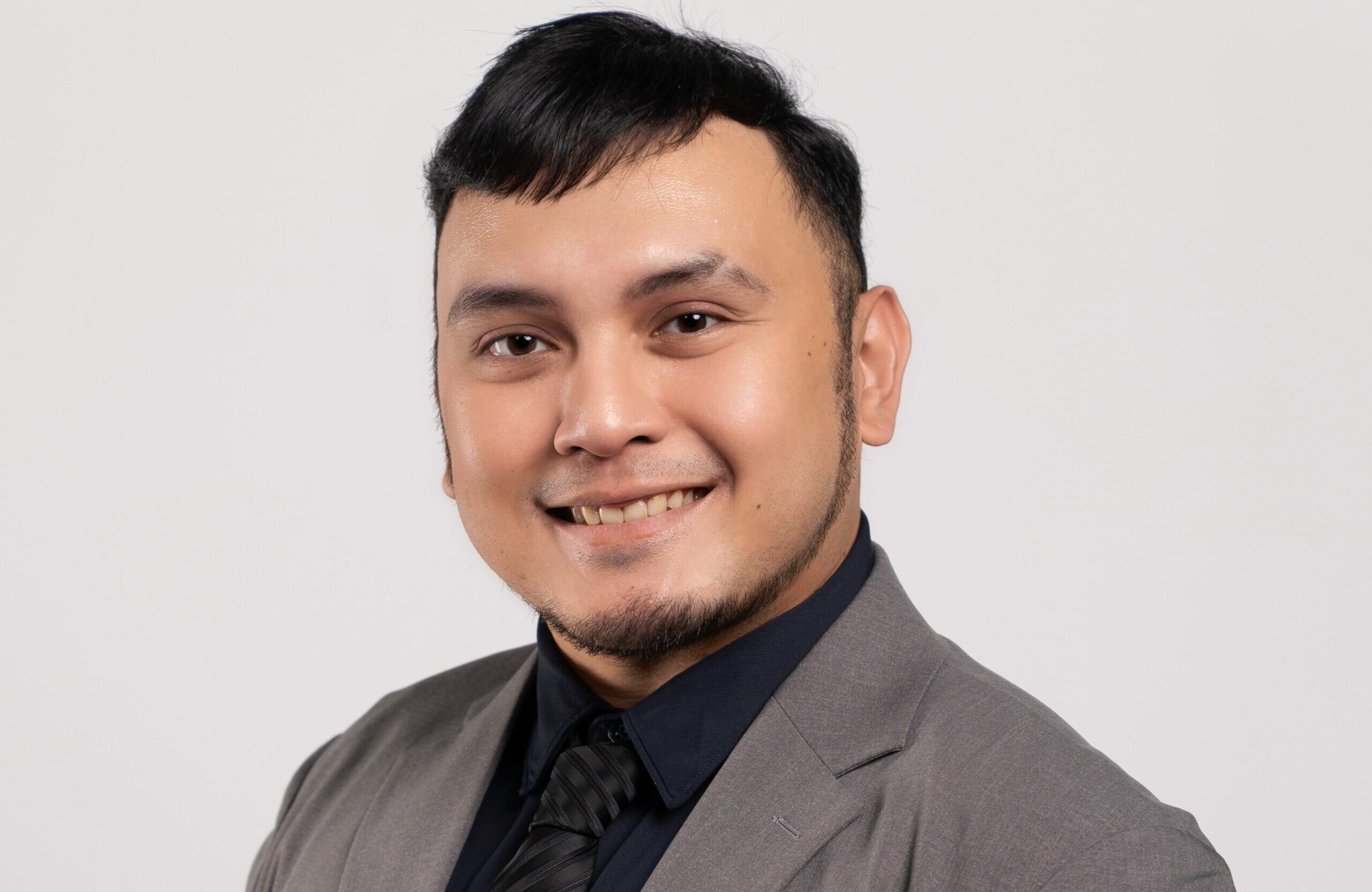
Keith Paolo Catibog Landicho

Keith Paolo Catibog Landicho
Keith Paolo C. Landicho is an Associate Research Fellow with the Humanitarian Assistance and Disaster Relief (HADR) Programme at the Institute of Defence and Strategic Studies, S. Rajaratnam School of International Studies, Nanyang Technological University, Singapore. He previously worked as a Disaster Monitoring and Analysis Officer at the AHA Centre from 2020 to 2023.
He is currently a member of the ASEAN Emergency Response and Assessment Team and was deployed to Myanmar in 2023 for consultations on humanitarian needs to operationalise the ASEAN Five-Point Consensus and to support Cyclone Mocha response operations. He is also an ASCEND-certified assessor and disaster information management professional.
He holds a Bachelor of Science (Geography) from the University of the Philippines.
His research interests include humanitarian technology, geospatial analysis for HADR and ASEAN disaster management.
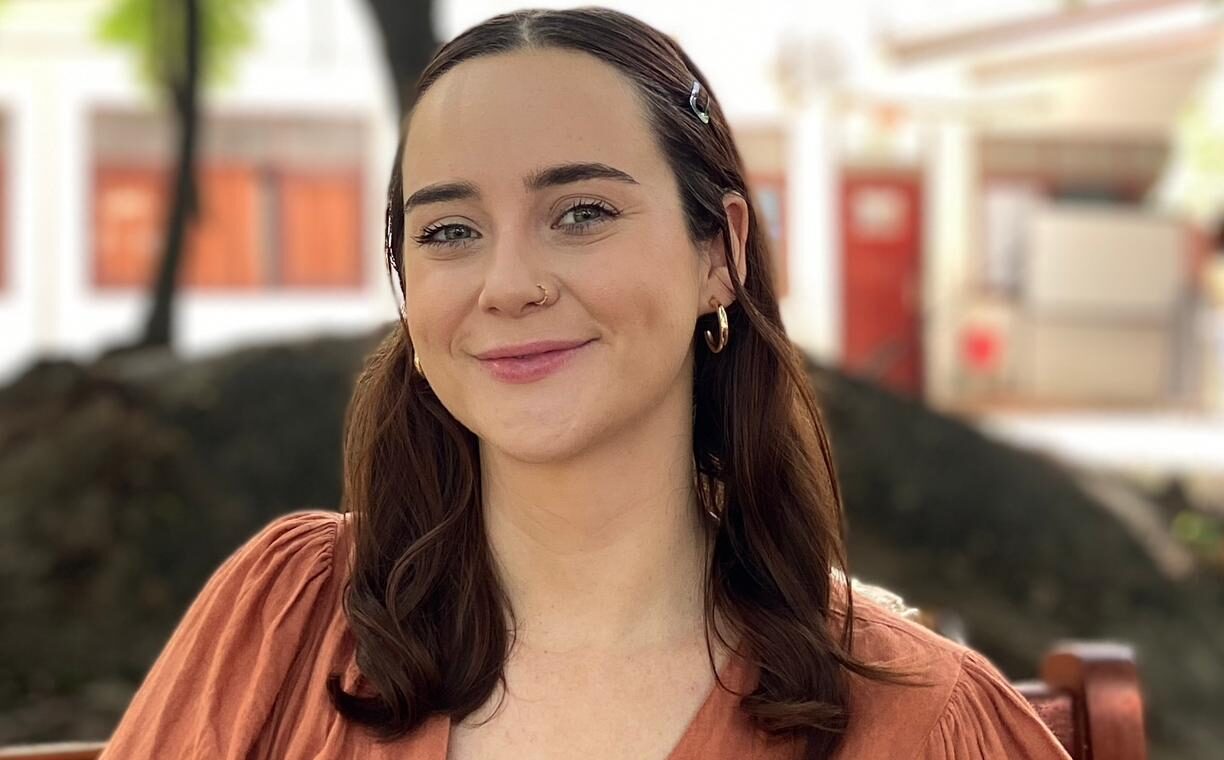
Emma O’Hara

Emma O’Hara
Emma O’Hara is a Monitoring, Evaluation and Learning (MEL) Specialist working with CARE in Timor-Leste, one of the most disaster-prone countries in the world. She supports the design, implementation and learning of disaster resilience and climate adaptation programs, with a focus on strengthening community preparedness, early warning systems, anticipatory action and inclusive approaches to disaster risk reduction. Her work places a strong emphasis on translating data and evidence into actionable learning to improve program quality, effectiveness and accountability.
A core part of Emma’s role is supporting localisation and inclusion within disaster resilience programming. She works closely with partners to embed gender equality, disability inclusion and safeguarding into program design and measurement, ensuring resilience initiatives are accessible, equitable and responsive to diverse community needs.
Emma is particularly interested in how evaluation findings and community-level evidence can inform stronger program practice and policy dialogue, contributing to more effective and inclusive disaster resilience outcomes for communities most at risk.
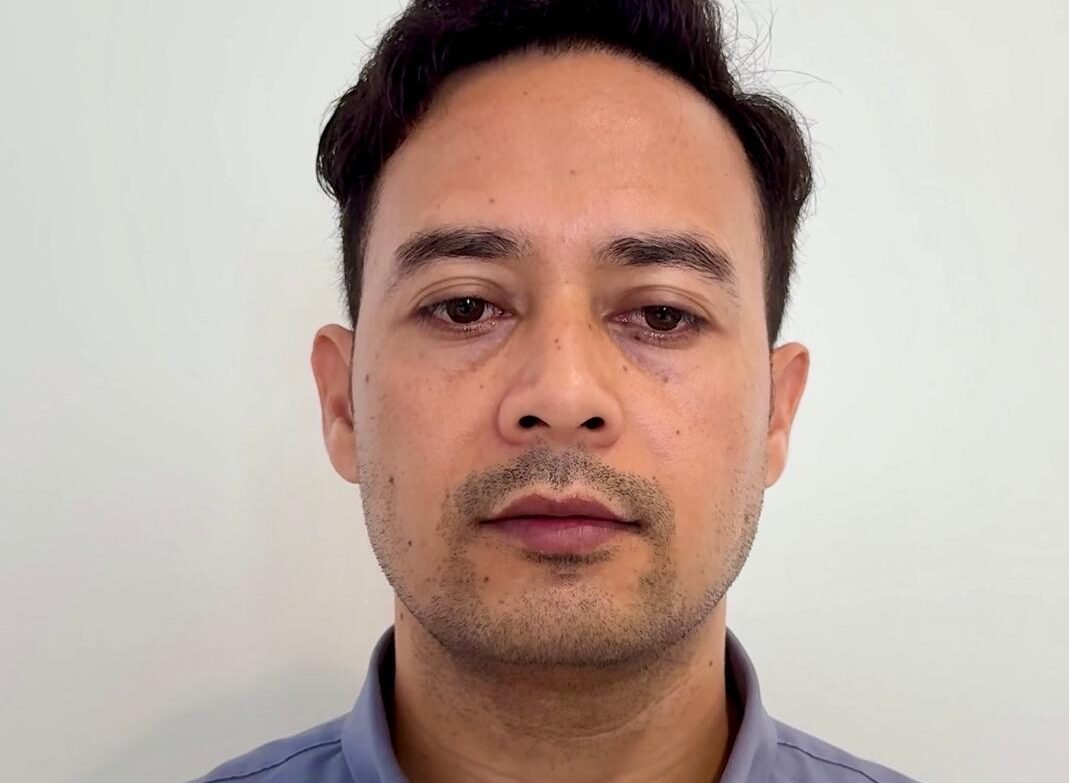
Sanjay Pariyar

Sanjay Pariyar
Sanjay Pariyar is a Climate and Disaster Resilient Development Specialist with professional experience working at the interface of climate policy, disaster risk reduction, early warning systems and humanitarian preparedness across South and Southeast Asia. He is currently based in Vientiane, Lao PDR, where he works with the United Nations Office for Disaster Risk Reduction, embedded within the United Nations Resident Coordinator’s Office, providing technical leadership on disaster governance, early warning systems, and humanitarian preparedness and response.
His work has contributed directly to high-level national and regional processes, including the development of Nationally Determined Contributions, the rollout of the global Early Warning for All initiative, and the formulation of national and sectoral disaster risk reduction strategies and action plans. He has worked closely with governments, United Nations agencies, civil society and development partners to translate global climate and disaster frameworks into practical, country-owned solutions.
He holds a Master’s degree in Climate Change from the Australian National University.
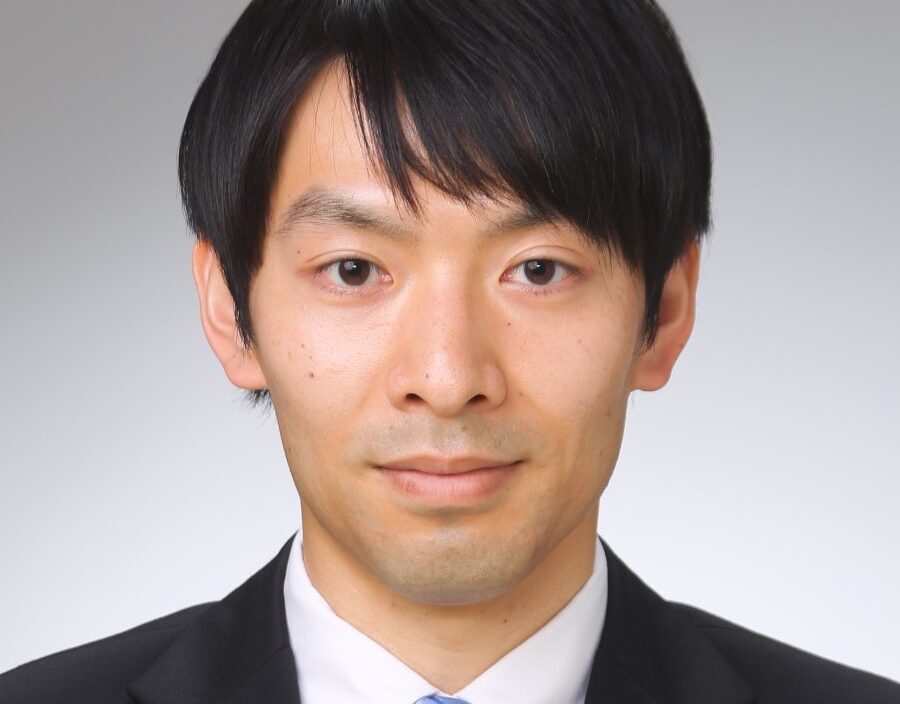
Dr Yuto Shiozaki

Dr Yuto Shiozaki
Dr Yuto Shiozaki is a researcher at the National Research Institute for Earth Science and Disaster Resilience (NIED), Japan, specialising in urban planning, disaster resilience and recovery. His work sits at the intersection of urban planning and quantitative social science, examining how cities and local communities respond to disasters, recover over time, and how pre-disaster resilience shapes post-disaster outcomes.
At NIED, he leads and contributes to research on the empirical validation of resilience indicators, developing evidence-based measurement frameworks for disaster preparedness and recovery policy. He is also involved in a large-scale, population-based post-disaster recovery survey of all residents aged 18–79 in Wajima City following the 2024 Noto Peninsula Earthquake, exploring what recovery looks like under conditions of population decline and assessing how resilience factors influence recovery trajectories.
Beyond academic research, he works closely with local residents and municipal governments to co-design visions and plans for flood-adaptive cities. Through participatory workshops and collaborative planning processes, he examines the urban structures and governance arrangements required to enable communities to sustain themselves amid increasing flood risk.
He is committed to translating research into practice by supporting decision-makers with actionable evidence and embedding resilience concepts into real-world planning and implementation.
He holds a Bachelor of Engineering, Master of Engineering and Doctor of Philosophy in Urban Engineering from the University of Tokyo.
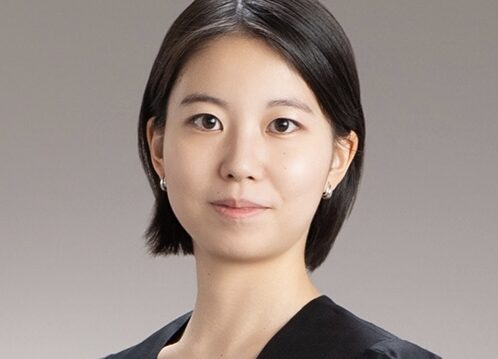
Dr Misa Tomono

Dr Misa Tomono
Dr Misa Tomono is a medical doctor and incoming PhD candidate in Multi-Sectoral Preparedness and Strategic Coordination, with multidisciplinary field and academic experience in public health and all-hazards response.
Her background includes frontline engagement in both natural and human-made disasters, including the humanitarian response to the war in Ukraine and the Noto Peninsula Earthquake in Japan, as well as research and peer-reviewed publications related to the COVID-19 pandemic. She has worked with a range of domestic and international public institutions, including the World Bank, the Ministry of Health and Medical Services of Fiji, the Ministry of Health, Labour and Welfare of Japan, and a Japanese municipal government.
She is currently training as a junior resident in emergency medicine at the Japan Institute for Health Security (National Center for Global Health and Medicine). She will commence her PhD at the Health Security Center, Kyoto University, Japan, in April 2026.
She holds a medical degree and has a strong interest in the development of resilient, evidence-based crisis response systems.

Varsha Velusamy

Varsha Velusamy
Varsha Velusamy is a development sector professional with over eight years of experience working at the intersection of climate resilience, livelihoods and public policy across India’s Himalayan and North-Eastern regions. Her work focuses on strengthening community-based institutions and local economic systems that shape how communities anticipate, absorb and recover from shocks in ecologically fragile and disaster-prone landscapes.
Through extended field engagement with tribal communities in remote regions such as Meghalaya, Varsha has designed and operationalised climate-resilient agri-enterprise models, cooperative-owned processing infrastructure, and community–public–private partnerships embedded within sensitive ecosystems.
Her experience spans multiple governance levels, from working with village-level community institutions and state governments to national policy engagement through the Mahatma Gandhi National Fellowship under the Ministry of Skill Development and Entrepreneurship and the Indian Institute of Management, and now to country-level investment and policy work with the International Fund for Agricultural Development. In her current role, she supports agroecology-aligned value chains, focusing on enterprise de-risking, blended finance and investment frameworks that translate grassroots realities into scalable policy and financing solutions.
She is a motorcycle enthusiast and has travelled over 20,000 kilometres across India, gaining first-hand exposure to diverse geographies and communities and reinforcing her belief in experiential learning and cross-country partnerships.
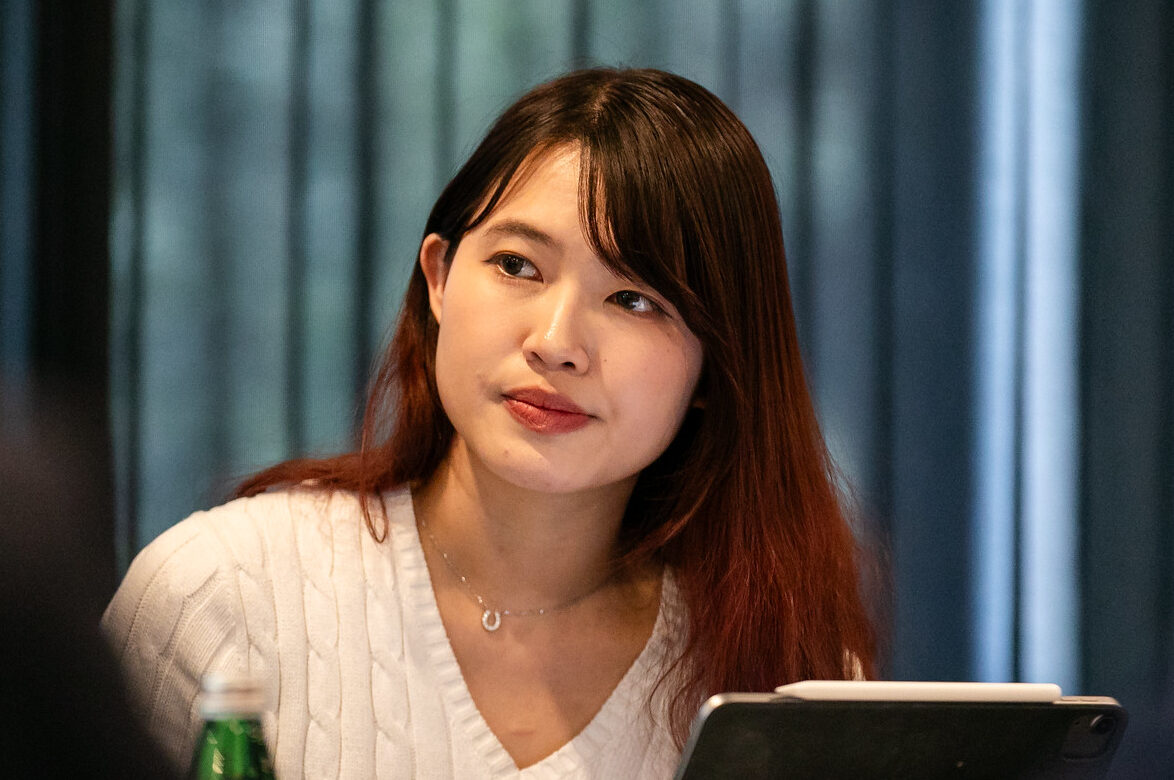
Minh Phuong Vu

Minh Phuong Vu
Minh Phuong Vu is a PhD candidate in International Relations at the Australian National University. Her research focuses on Indo-Pacific foreign policy and regional security, with particular attention to Southeast Asia.
Her doctoral research examines the role of historical memory in shaping Vietnam’s foreign policy. She has published on maritime and non-traditional security issues, including environmental degradation and livelihood insecurity in the South China Sea. Her academic writing and policy commentary have appeared in The Pacific Review, East Asia Forum, Australian Outlook and the South China Morning Post. She has also contributed to government-funded research on gender equality at the ANU Global Institute for Women’s Leadership, informing her interest in the social dimensions of climate change and disaster resilience. Minh previously worked as a Multimedia and Communications Officer at the Australian Institute of International Affairs.
She holds a Master of International Relations from the Australian National University and a Bachelor of International Studies from the University of Wollongong.
2024-25
The second cohort of the Indo-Pacific Cooperation Network travelled to Japan in June 2024 to study earthquake resilience, joined the AIIA National Conference with the first cohort in November 2024 before a study tour on bushfires in New South Wales, and finished the overseas component of the program with a study tour to Fiji and New Zealand in March 2025.
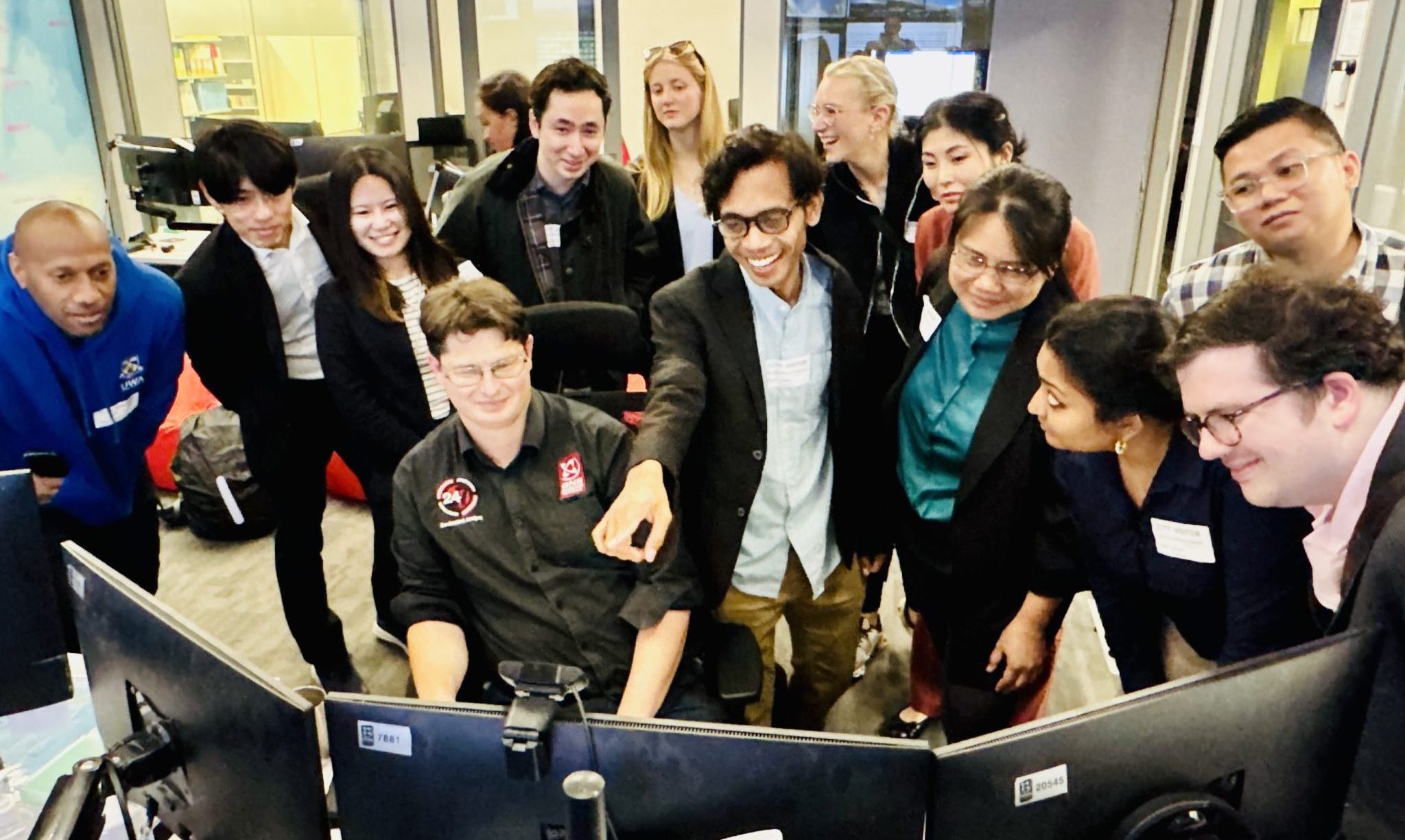
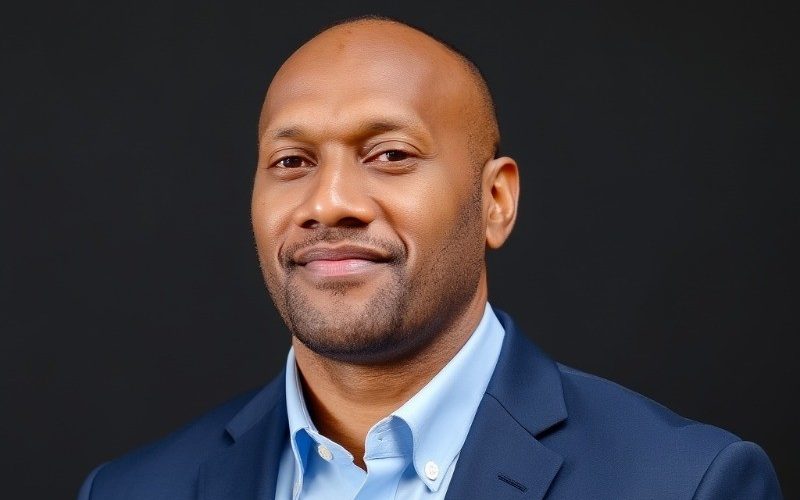
Iuma Bani

Iuma Bani
Iuma Bani began his professional career as a high school science teacher, also taking on administrative responsibilities. In 2019, he pursued further studies in environmental science with a focus on hydrometeorology at the University of Tsukuba. Recognising the urgent need for coastal management in his home country, he is now undertaking a second master’s degree in environmental science, specialising in coastal marine management at the University of Western Australia.
His career includes significant roles, such as Principal Scientific Officer at the Vanuatu Meteorology and Geo-Hazards Department, where he led public and commercial weather forecasting services. As a Weather Forecaster, producing essential forecasts and warnings became a core part of his work.
With an academic background in mathematics and physics and practical teaching experience, Iuma brings a comprehensive approach to environmental science. He places strong emphasis on collaboration and community engagement, actively participating in youth organisations, athletics, and music—demonstrating a well-rounded and cooperative ethos.
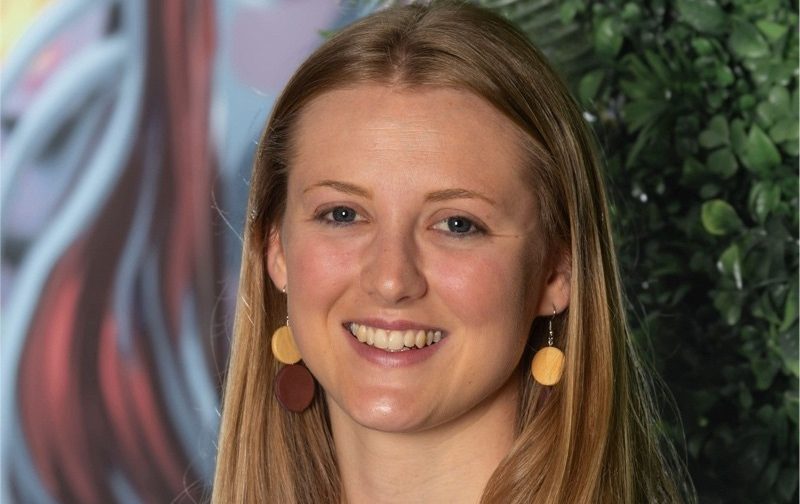
Rebekah Baynard-Smith

Rebekah Baynard-Smith
Rebekah Baynard-Smith is a consultant with Canberra-based international development firm Sustineo, working with NGOs, governments and UN agencies across the Indo-Pacific in the fields of climate resilience, WASH, labour migration and more. Prior to this, Rebekah worked as a disaster resilience and community development practitioner, supporting communities across Victoria and New South Wales to build preparedness to bushfires and other natural and man-made hazards. Rebekah was part of the Victorian Government’s award-winning Community Based Bushfire Management team, and designed and launched the innovative “Get Techy, Get Ready” program. She has also coordinated programs for Australian social enterprise Resilient Ready, focusing on building business resilience with tourism operators, agribusinesses, Councils and not-for-profit/community organisations.
Outside of work, Rebekah volunteers for the Nusa Tenggara Association supporting their income generation, education and disaster relief projects in Eastern Indonesia. She speaks Indonesian and is heavily involved in the Australia-Indonesia community across Canberra and Melbourne.
Rebekah is passionate about working with culture to build an Indo-Pacific that is ready for the new era of compounding disasters.

Mark Anthony Daza

Mark Anthony Daza
Mark Daza is a Project and Communications Manager at the Harvard Humanitarian Initiative (HHI), Harvard University’s academic and research center in humanitarian crisis and leadership. Mark has been leading strategic communications and social science research on disaster preparedness and climate resilience in the Philippines under HHI’s Program on Resilient Communities. Before joining HHI, Mark worked as a media producer, writer, and researcher for ABS-CBN Corporation. He devoted most of his journalism career to producing documentaries and specials on television and digital platforms that chronicled the struggles and triumphs of people afflicted with social problems. His stories focused on human rights, poverty, children’s rights and welfare, public health, education, labor and migration, and gender equality, among others.
Mark has also written for various organizations, such as the Philippine Daily Inquirer, Pioneers Post, the Philippine Center for Entrepreneurship, and the ASEAN Business Advisory Council. His writing, which primarily focused on micro, small, and medium enterprises (MSMEs) and solutions journalism, earned him a Social Enterprise Journalism Fellowship from the British Council in 2016, and a Climate Journalism Fellowship from Climate Tracker and Rosa Luxemburg Foundation in 2020. In 2021, the Thomson Reuters Foundation named him one of the global Changemakers committed to developing solutions to pressing human rights challenges such as climate change, socio-economic inclusion, and media freedom.
Mark obtained his BA in Communication Arts from the University of Santo Tomas.
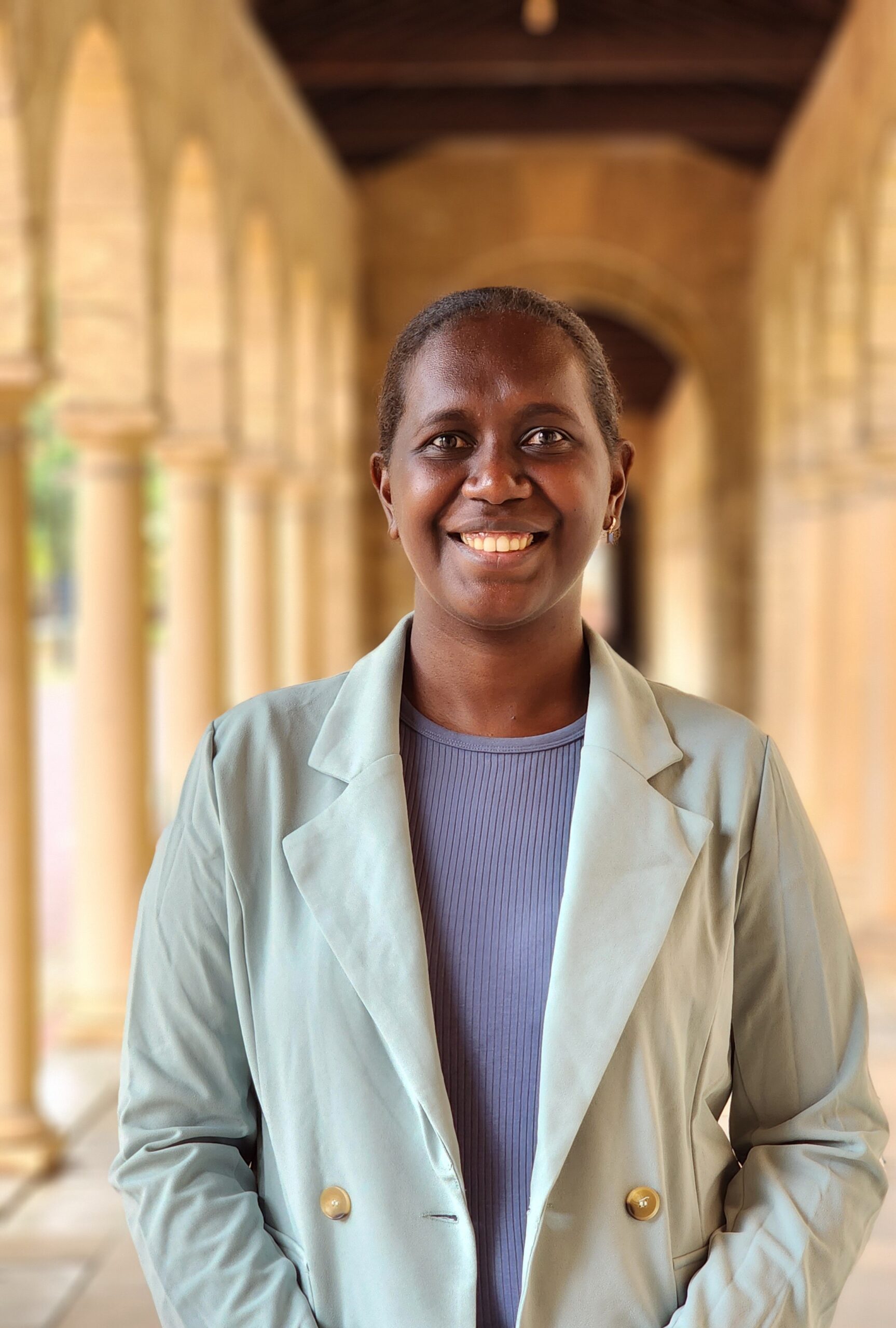
Lina Dorovolomo

Lina Dorovolomo
Lina is an experienced environmental professional, deeply committed to sustainable natural resource practices and indigenous community empowerment through conservation. She has vast experience in managing and coordinating conservation programs and activities in the Solomon Islands. Her career includes significant roles like Project Manager for the Forest Value Enhancement Project at Live and Learn Solomon Islands and Project Coordinator for Protected Areas at Ecological Solutions Solomon Islands.
At the time of her participation in the Indo-Pacific Cooperation Network, Lina was pursuing a Master of Environmental Science at the University of Western Australia. Specifically, in Environmental Management with focus on GIS. She is the recipient of the Ed Smith Leadership Award through the Australia Awards. She also holds a Postgraduate Diploma of Science (Environmental Geoscience) and a Bachelor of Science (Environmental Science) from the University of the South Pacific.
Her aspiration is to inspire and influence a collective commitment to preserving that natural beauty and resources of the Solomon Islands, ensuring a thriving and sustainable future.
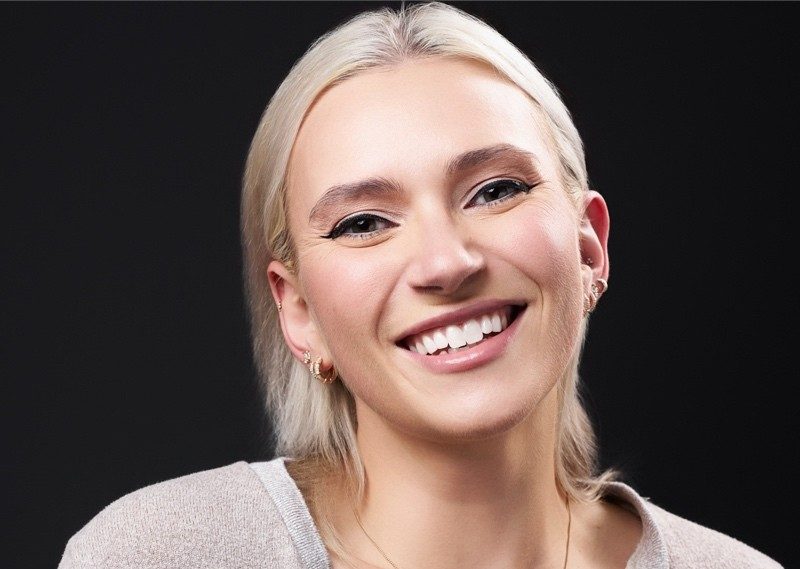
Franzisca Doser

Franzisca Doser
Franzisca Doser is Group Welfare Manager for the Wellington Region Emergency Management Office. Previously, she was an Emergency Management Lead at Health New Zealand; her role is responsible for coordinating and strengthening disaster resilience, readiness, response and recovery capability of the Canterbury district’s health system.
As an early-career professional who graduated with her Master’s degree in 2020, Franzisca has a deep appreciation for the relationship between applied science and research, and implications for practice and policy. Before becoming an emergency manager, Franzisca worked to support the recovery of the families, survivors, and witnesses from the Christchurch terrorist attacks. Her time in this role enabled her to gain an in-depth understanding of the systems that make up the unique way in which New Zealand government agencies and community-led initiatives collaborated to responded to complex human needs post-calamity.
Franzisca’s career in the Civil Defence Emergency Management space started at Christchurch City Council, where she worked as Community Resilience Coordinator and later Welfare Manager. Her response experiences include deployments to support Auckland and Hawke’s Bay in coordinating their district level responses to Cyclone Gabrielle.
Franzisca is convinced that international collaboration is needed to further the capabilities of emergency managers – not only from an organisational perspective, but more importantly on behalf of the communities she serves.
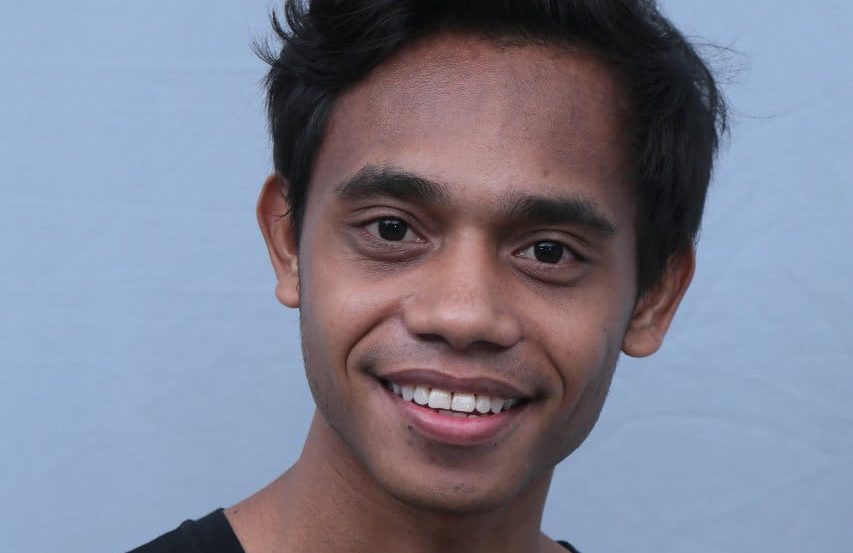
Marcolino Gonçalves Aleixo

Marcolino Gonçalves Aleixo
Marcolino Gonçalves Aleixo holds a degree in Atmospheric Science and Meteorology from the State University of São Paulo (Universidade Estadual Paulista), Brazil, completed in 2018. He has experience in geoscience, with expertise in climate system analysis, data science, climate change, maritime and weather forecasting, environmental issues, disaster risk reduction, early warning systems, agroforestry, drought monitoring, and severe weather events such as tropical cyclones, strong winds, thunderstorms, and fire alerts. He also engages in anticipatory action planning. With over four years of professional experience, he has worked with the Meteorology Office in Timor-Leste, the European Union Delegation, and the Food and Agriculture Organization of the United Nations (FAO).
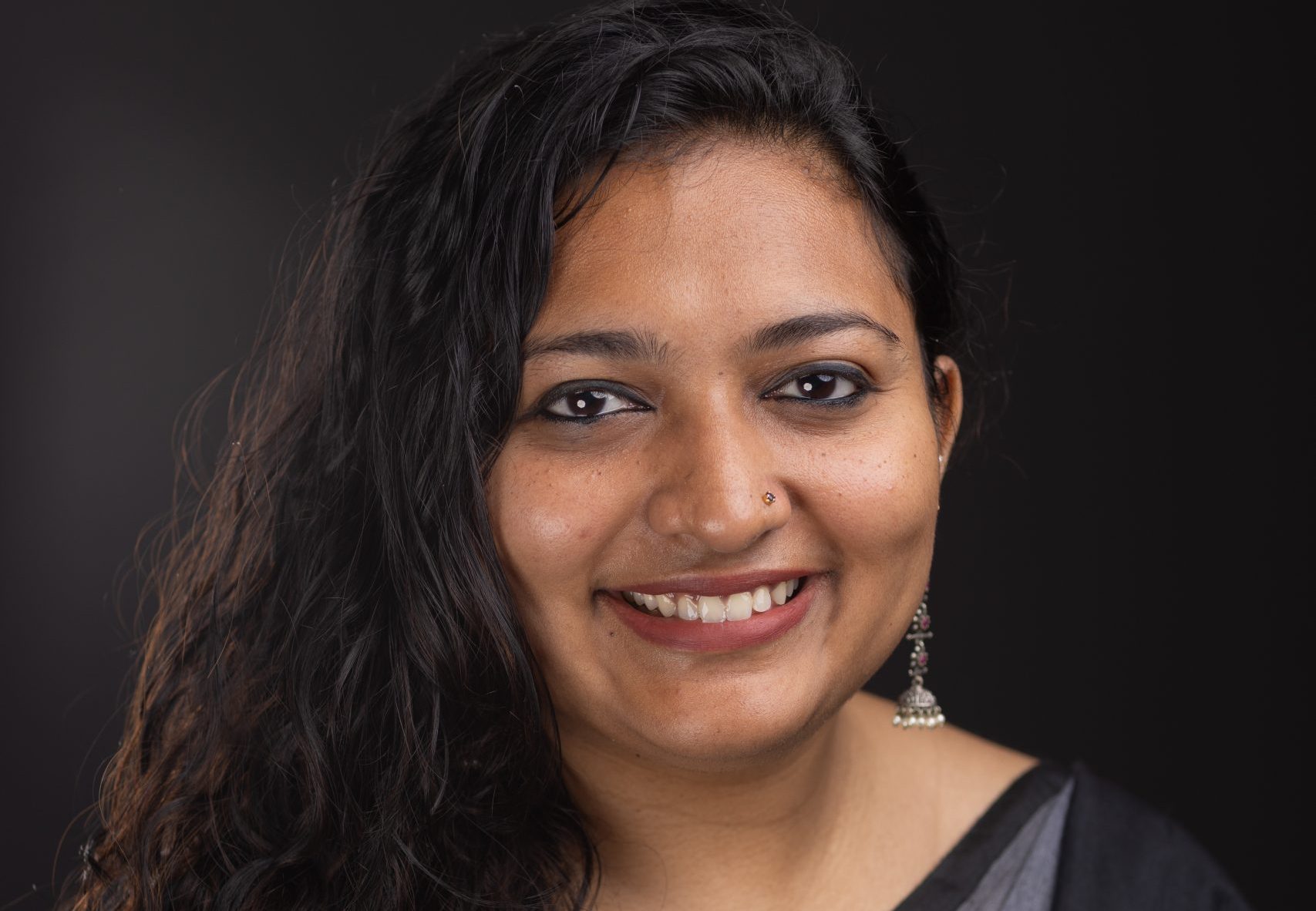
Dr Aysha Jennath Kalathuparambil

Dr Aysha Jennath Kalathuparambil
Dr Aysha Jennath holds a Ph.D. in urban planning from the Indian Institute of Technology Kharagpur. She is currently a postdoctoral researcher at the Indian Institute for Human Settlements (IIHS) in Bengaluru. At IIHS, she participates in various collaborative research projects aimed at understanding and addressing the multifaceted challenges of climate migration and climate adaptation in Southeast Asia, working with colleagues in Nepal, Bhutan, Bangladesh and UK.
Aysha has conducted extensive research on coastal climate change in India, examining both the physical and social impacts across diverse and vulnerable landscapes, including the Lakshadweep Archipelago. Her doctoral thesis focused on the diverse population mobility responses to climate change in coastal regions, encompassing migration, immobility, and planned relocation, with a strong emphasis on the role of government and public policy in managing climate challenges. Her work also included developing innovative methodologies for climate change hazard modeling in coastal areas.
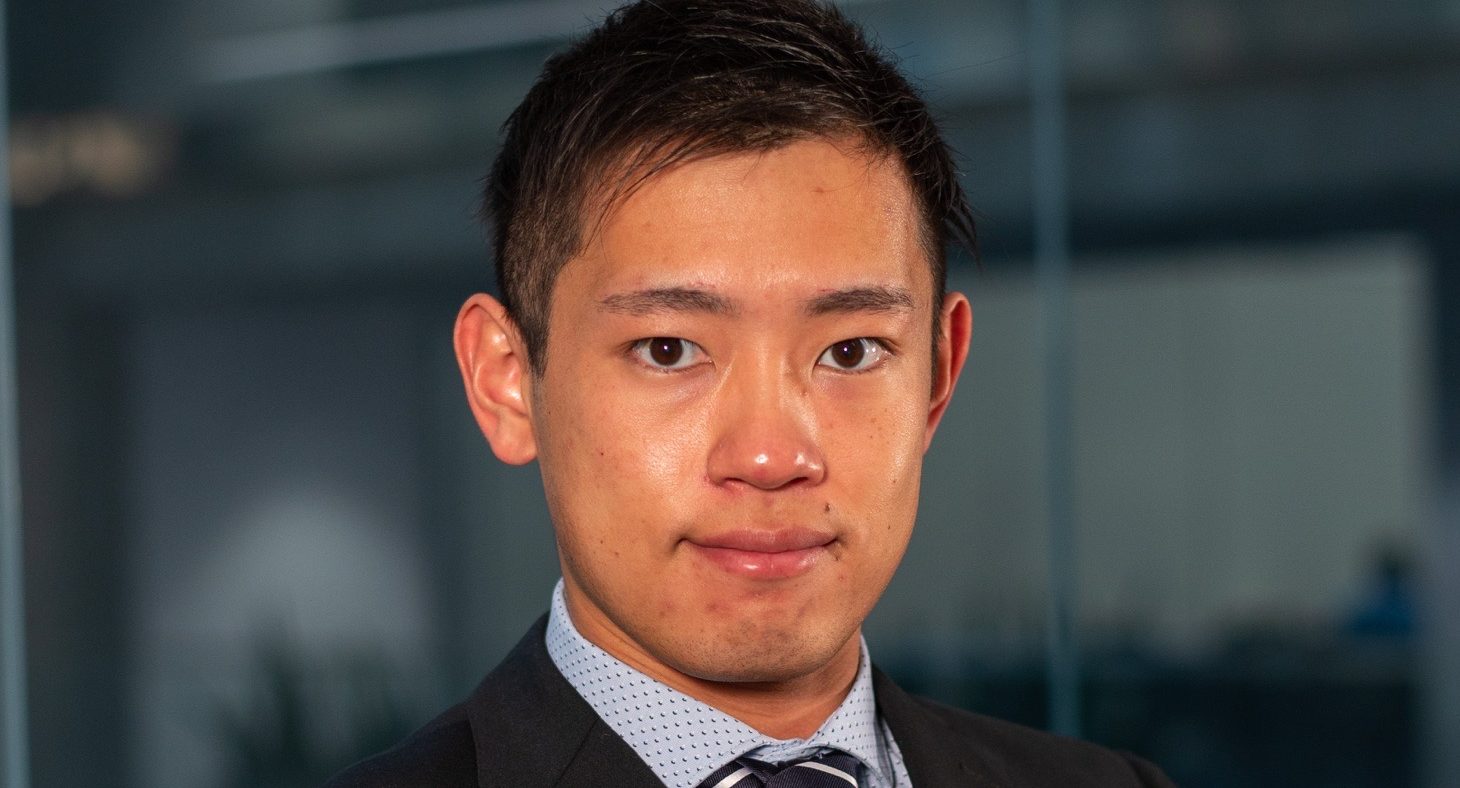
Daisuke Kageyama

Daisuke Kageyama
Daisuke Kageyama is a researcher in the volcano and debris flow research team at the Public Works Research Institute in Japan. Daisuke has seven years of experience working in the government sector, both in the central government and local government, including the Ministry of Foreign Affairs of Japan, the Ministry of Land, Infrastructure, Transport and Tourism, and the Hyogo Prefectural Government. Daisuke specializes in building a resilient and sustainable society through data-driven approaches with statistical analysis skills, civil engineering expertise, and deep insight into natural disasters. Daisuke grew up at the foot of Mt.Fuji in Fuji City, Shizuoka, where people live amid the risks of mega earthquakes, tsunamis, and volcanic eruptions, which made him decide to devote his life to creating a resilient and sustainable society for the future generation. In his free time, Daisuke likes to read novels and telemark ski in the mountains. Daisuke earned his bachelor’s in Forest Science, specializing in erosion control engineering, from Hokkaido University, Sapporo, Japan, and his master’s in Public Policy, specializing in policy analysis and urban science and sustainable development, from the University of Chicago, Chicago, USA.
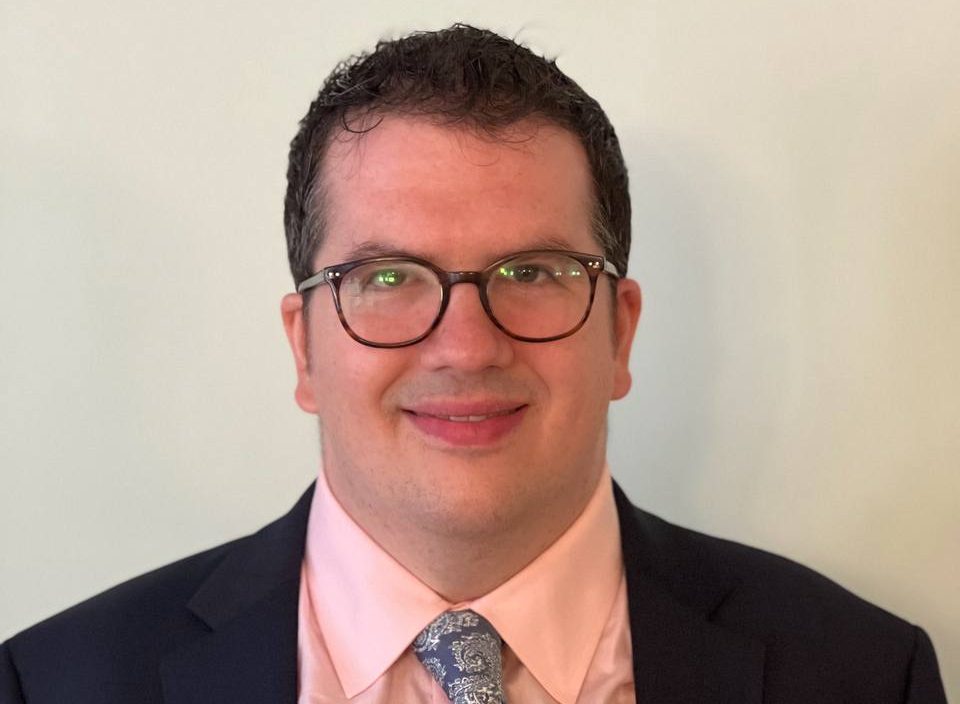
Stephen McHugh

Stephen McHugh
Stephen McHugh currently serves as a program officer at the Japan Center for International Exchange (JCIE/USA). At JCIE/USA Stephen manages a diverse array of programs that examine US-Japan cooperation on key global issues, including on promoting healthy aging and supporting democratic governance in the Indo-Pacific region. He also helps run several US-Japan legislative exchange programs, including a US Congressional Staff Exchange program. In his work promoting healthy and active aging, Stephen has a specific interest in how policy can properly account for and protect older people, particularly in the face of disasters, including natural disasters, climate-change related extreme weather events, and pandemics.
Prior to joining JCIE/USA Stephen spent two years teaching English at a public high school in Tokyo through the Japan Exchange and Teaching Program (JET). Following this experience, he went on to serve as a JET Program Coordinator at the Embassy of Japan in Washinton DC, where he managed the application process for all US applicants to the program. Stephen was born and raised in London but moved to the United States to study at The University of Chicago, where he obtained a BA in English Literature.
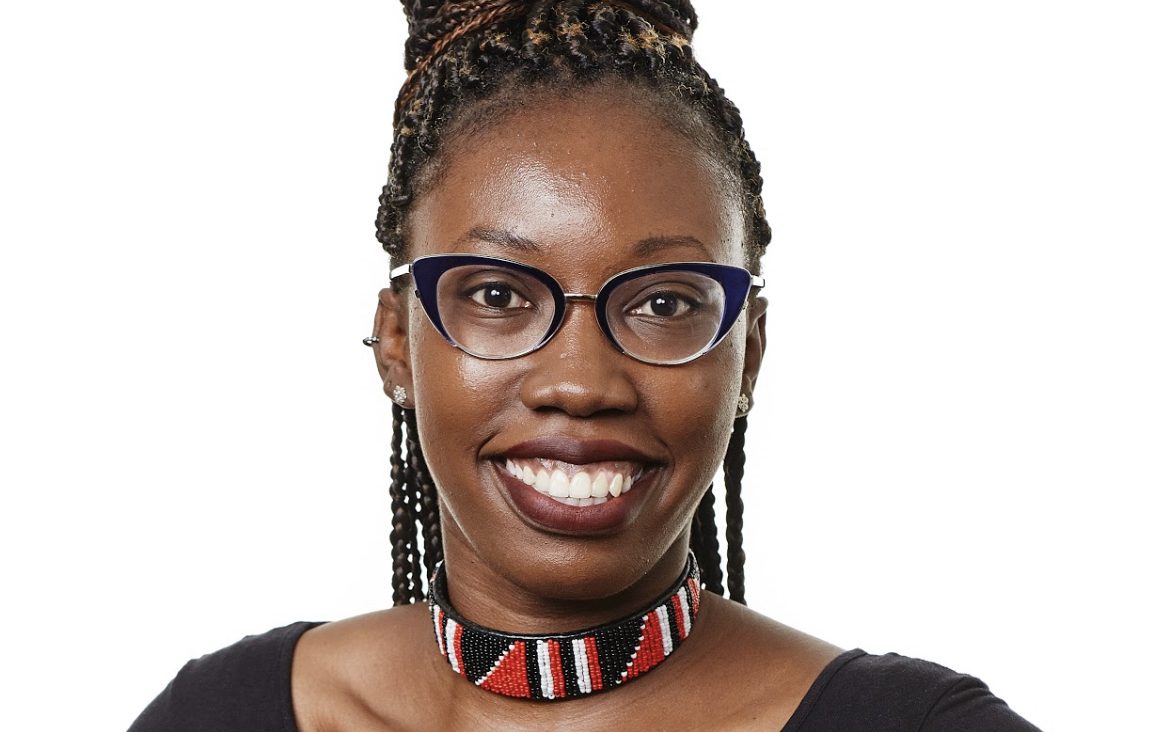
Mercy Moraa Nyanchoga

Mercy Moraa Nyanchoga
Mercy Moraa Nyanchoga, originally from Kenya, has a clinical background and has practiced as a general practitioner in various settings, including private and public hospitals. Her work in Kenya’s Kakuma refugee camp, one of the largest refugee camps in the world, ignited her passion for migrant and refugee health and her advocacy for health equity and systemic change- from both a systemic and community perspective.
Moraa moved to Australia six years ago to pursue a Master’s degree in Advanced Health Services Management at Griffith University. Since then, she has volunteered and worked in numerous roles focused on multicultural health in Queensland. Recently, she served as the State-wide Coordinator for the CALD COVID Health Engagement Project (CCHEP) at Mater Hospital. This project, funded by QLD Health, aimed to support and collaborate with multicultural communities and organisations across Queensland during the pandemic.
Currently, Moraa works as a Principal Policy Officer in the System Policy Branch (Multicultural Health team) at Queensland Health. She has also conducted research and published works on refugee and multicultural health across various topics.
Outside of work, Moraa is a community leader within her Kenyan Community in QLD.
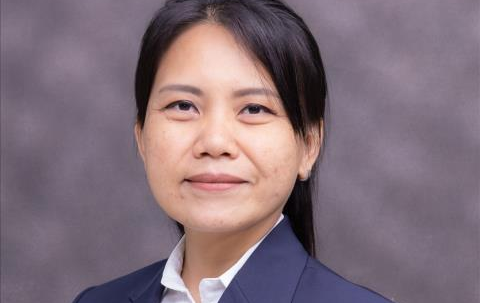
Dr Sirinon Suwanmolee

Dr Sirinon Suwanmolee
Dr Sirinon Suwanmolee is a Thai researcher with extensive experience in disaster resilience and climate adaptation across government, academia, and non-government organisations. In 2023, she was appointed to the Academic Subcommittee on Disaster Prevention, Mitigation, and Climate Change Impact Reduction, where she serves on the Working Group on Resilient Cities and Communities under the Department of Disaster Prevention and Mitigation within the Ministry of Interior of Thailand.
From 2022 to 2024, Sirinon served as a consultant with the United Nations Development Programme, where she spearheaded stakeholder engagement and contributed to the technical development of Thailand’s National Adaptation Plan revision. Additionally, she holds the role of Secretary Chief for the Thai Network for Disaster Resilience and has provided consultation on safe school workshops to enhance disaster preparedness in the education sector.
In her academic career, Sirinon has served as an independent researcher on water management and disaster resilience, as well as a lecturer on disaster preparedness at King Mongkut’s University of Technology Thonburi. Additionally, from 2021 to 2022, she taught courses on disaster risk assessment and emergency response at Mahidol University’s Kanchanaburi campus.
Sirinon’s education encompassed diverse interdisciplinary expertise. She holds a PhD in Social Development Administration from the National Institute of Development Administration (2017), a Master of Disaster Risk Management from the Malaysia-Japan International Institute of Technology (2021), a Master’s in Community Resource Management from King Mongkut’s University of Technology Thonburi (2009), and a Bachelor’s degree in Biotechnology from Silpakorn University (2004).
Sirinon has dedicated her career to building community-level resilience, advancing disaster risk reduction policies, and seamlessly integrating scientific and social approaches to climate adaptation and emergency management across Thailand and the broader Southeast Asian region.
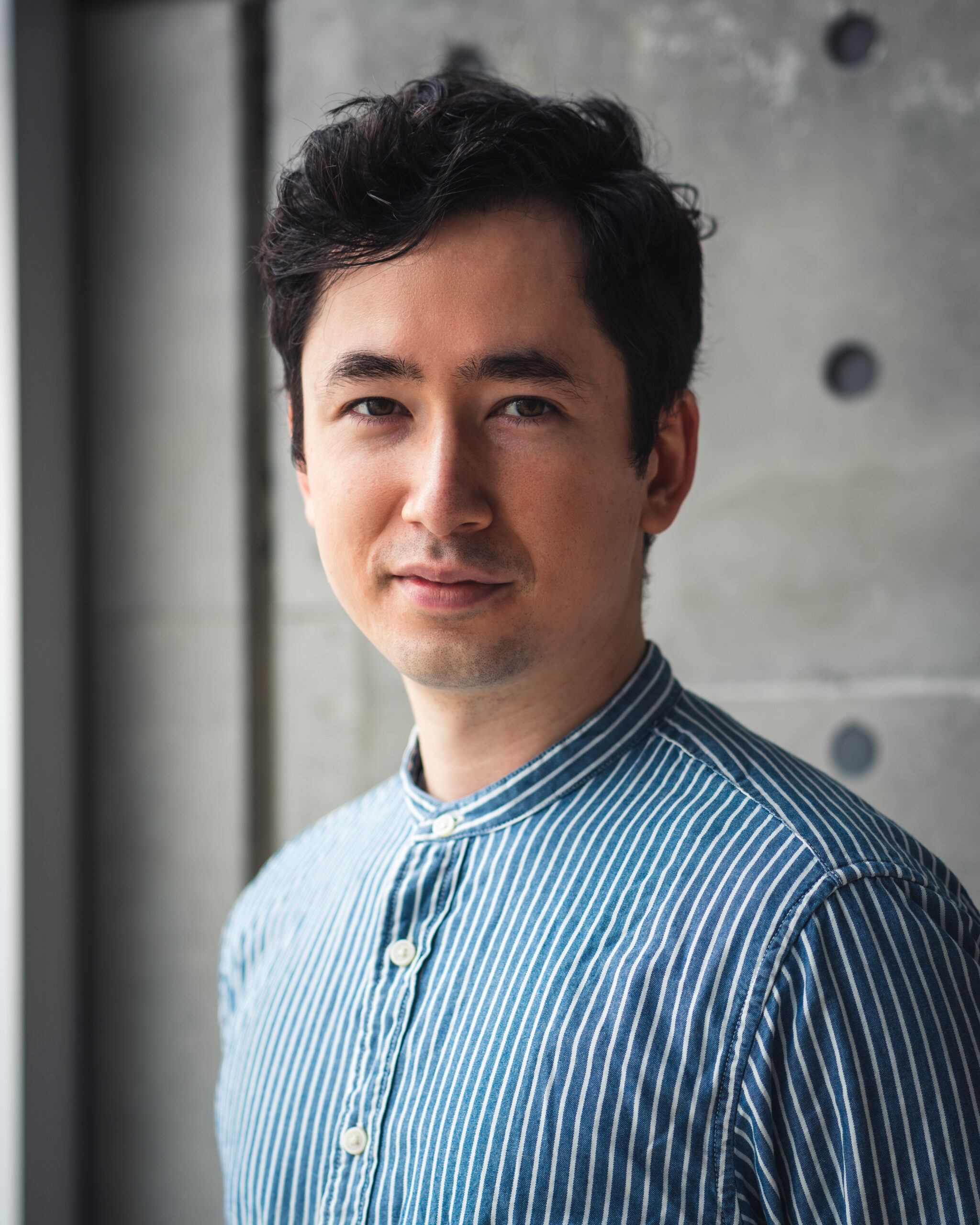
Dr Anoma van der Veere

Dr Anoma van der Veere
Dr Anoma van der Veere is the Japan Correspondent for NOS (Netherlands Public Broadcasting) and NRC newspaper, based in Tokyo, where he covers Japan across television, radio, and print media. He is the first international correspondent of Asian descent in Dutch public broadcasting, being of Thai heritage. In his role, he is responsible for general news coverage, while his personal interests lie in international relations, climate change, and disaster resilience.
Following a Master’s degree at Leiden University and an exchange at Keio University, he decided to pursue a PhD in Japan. He earned his doctorate from Osaka University in 2022 with the support of a MEXT scholarship. He now also serves as a Senior Researcher at the Leiden Asia Centre, Leiden University, focusing on Modern Asia with a specialisation in Japan.
Anoma is also a (remote) university lecturer at Maastricht University (The Netherlands), and teaches media and communication subjects at Tama University (Japan). He continues to teach and conduct research in order to maintain a connection with the academic world. He feels there is a disconnect between scientific knowledge and the general public, and believes the media plays a significant role in bridging this gap. His dual engagement in journalism and academia allows him to bring the right people together at the right moments, when possible.

Caroline Wang

Caroline Wang
Caroline Wang is the China Analyst at Climate Energy Finance. Previously, she was a Senior Policy Advisor in the Emergency Management Branch in the NSW Premier’s Department. Trained as a lawyer and linguist, she has 6 years’ experience in public and international policy, providing advice and briefings to Senior Executive officials and Ministers across a range of Australian Government portfolios. Caroline was the Principal Research Officer on the Australian Senate Inquiry into the devastating 2019-20 bushfires. Passionate about sustainability and conservation, Caroline is particularly interested in ecosystem-based approaches to disaster risk reduction.
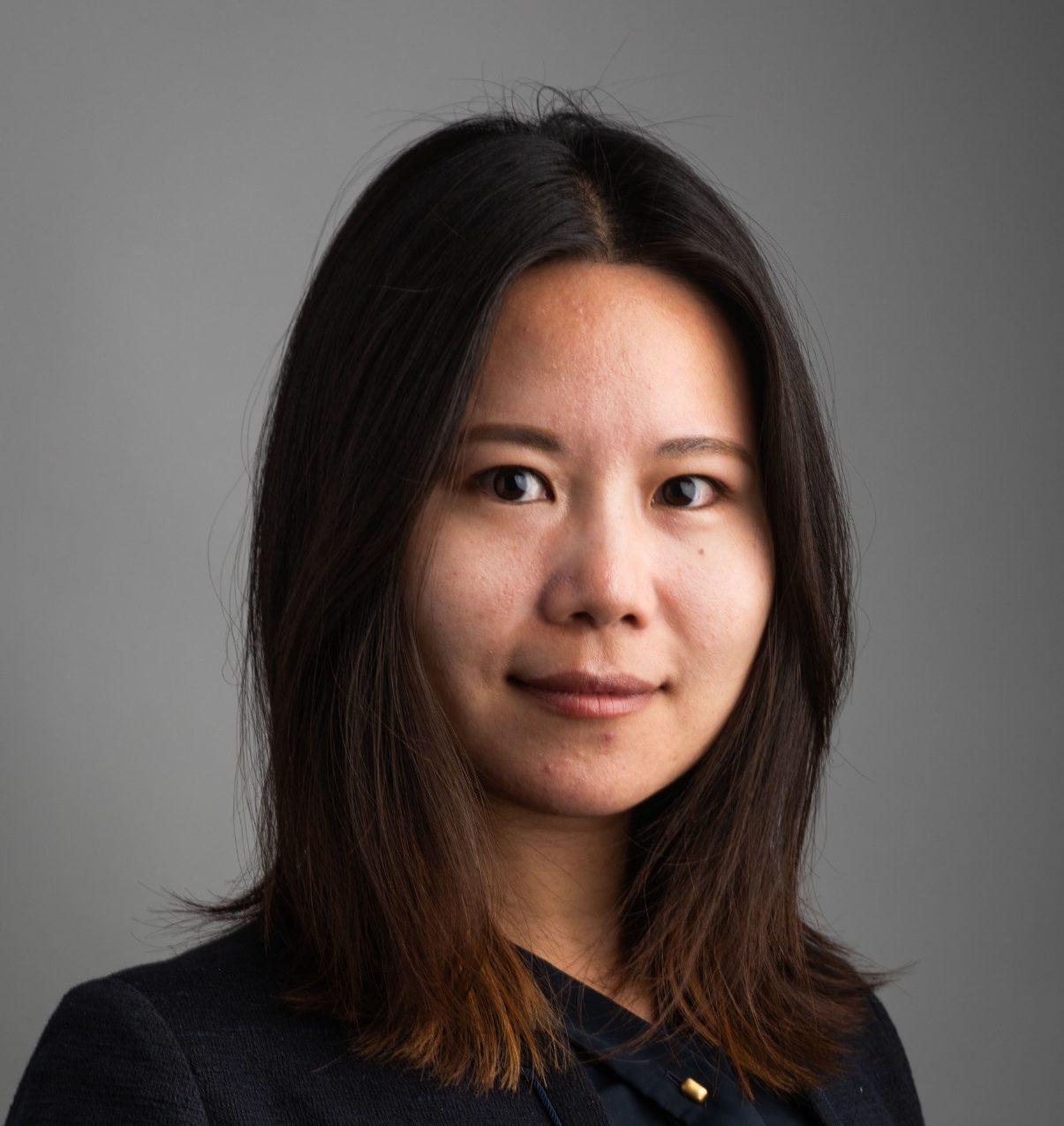
Miki Yamamoto

Miki Yamamoto
Miki Yamamoto is an MSc student in geoinformatics at the University of Copenhagen with eight years of experience working in geospatial technology, disaster management, and forestry. She is a recipient of the Rotary Foundation Global Grant Scholarship in the environment focus. She plans to explore the potential of nature-based solutions for disaster risk reduction in vulnerable regions for her thesis.
She worked as a GIS engineer in Japan during 2017–2023, handling image processing and the damaged building assessment system. She lectured to more than 70 local governments, including 11 ordinance-designated cities, on how to reduce disaster risks through preparations in peacetime. As a disaster response, she was deployed on the ground during the Niigata storm in August 2022 and the Ishikawa earthquake in May 2023 to support implementing building damage assessments and publishing damage certificates.
She participated in the JICA volunteer program during 2014–2016 in forestry conservation in Malawi, a country grappling with severe deforestation. There, she conducted community surveys and forest inventory assessments and promoted briquettes using organic waste.
In her free time, she enjoys language exchange, picnics, and hiking.
2023-24
The inaugural cohort of the Indo-Pacific Cooperation Network travelled to Japan in September 2023 to study earthquake resilience, joined the AIIA National Conference in November 2023, travelled to Fiji and Tonga in 2024, and met the second cohort at the 2024 AIIA National Conference in Canberra.
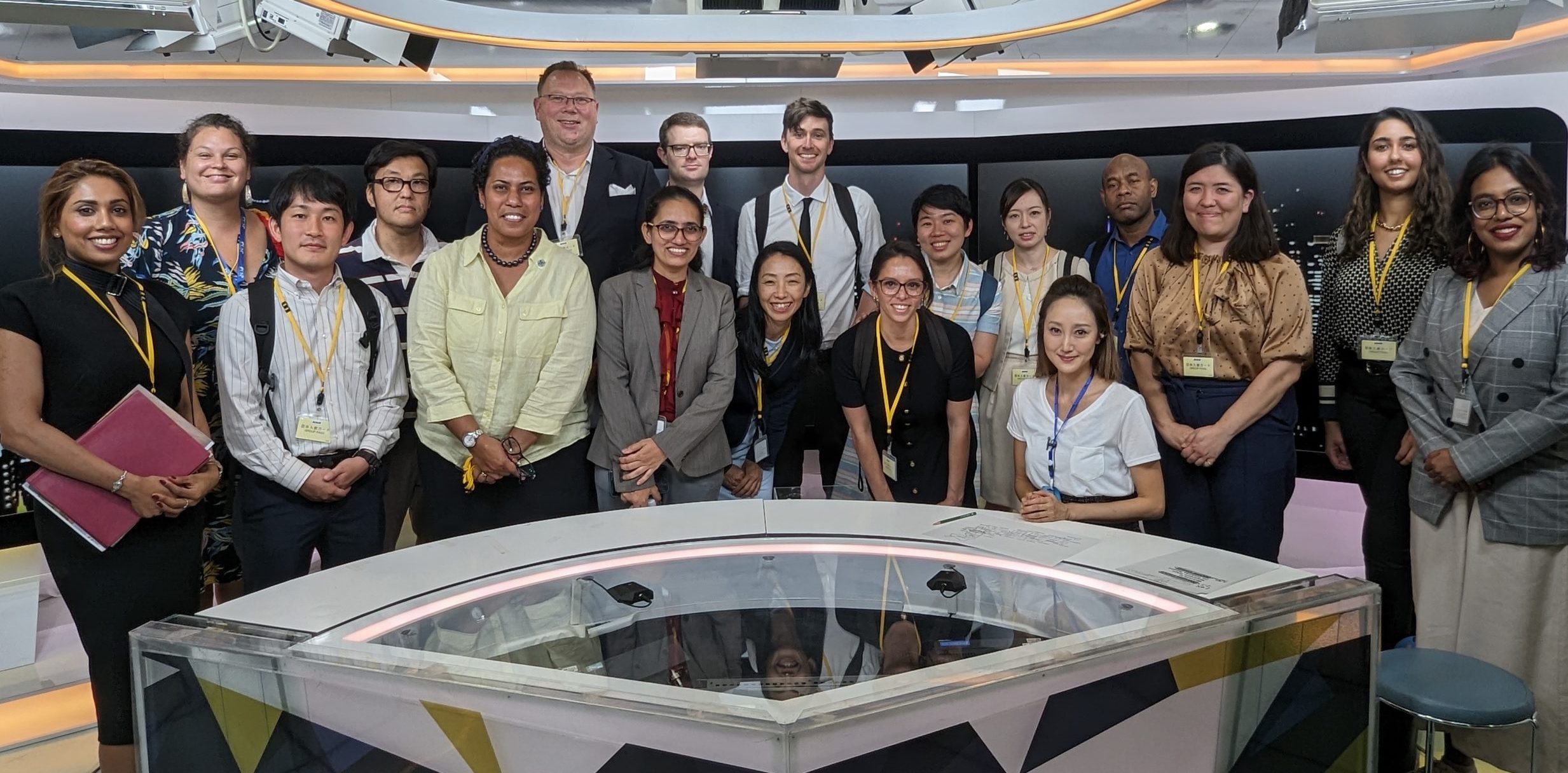

Mere Komailevuka Bainimarama

Mere Komailevuka Bainimarama
Mere K Bainimarama is Principal Environment Officer (EIA) with the Republic of Fiji’s Ministry of Environment & Climate Change. Previously she was a Senior Environment Officer in the Environment Impact Assessment (EIA) Unit at the Department of Environment under the Prime Minister’s Office. With over 12 years of professional experience, her expertise spans fieldwork, technical assessments, and policy drafting. In her current role, she helps manage the EIA Unit and ensures the effective implementation and enforcement of environmental laws and policies. She provides timely, well-researched, and science-based advice to meet the needs of stakeholders, partners, and collaborators.
Mere earned her Master’s in Environmental Science, specialising in Land and Water Rehabilitation, from the University of Western Australia in 2020 as an Australia Awards scholar. That same year, she was selected for the Women Leading and Influencing (WLI) cohort and currently serves as an executive member of the Fiji Australia Awards Alumni Association. In 2022, she joined the Young Pacific Leaders Program under the Pacific Forum International, where she continues to empower young Pacific leaders to address plastic pollution.
Her contributions to sustainable development in Fiji include leading impactful projects such as the FJ$14 million Fiji Ridge to Reef Program and the FJ$18 million Jobs for Nature project, funded by the Global Environment Facility (GEF) and the World Bank, respectively. Mere is a regular participant in national, regional, and international meetings and workshops on topics such as ocean accounts, waste management, the blue economy, environmental impact assessments, and natural resource management.
Outside her professional commitments, Mere enjoys reading, singing, sewing, making crafts, and constantly learning new skills. She is currently teaching herself to play the ukulele. Her dedication to both professional excellence and personal growth makes her a standout leader in Fiji’s environmental sector.
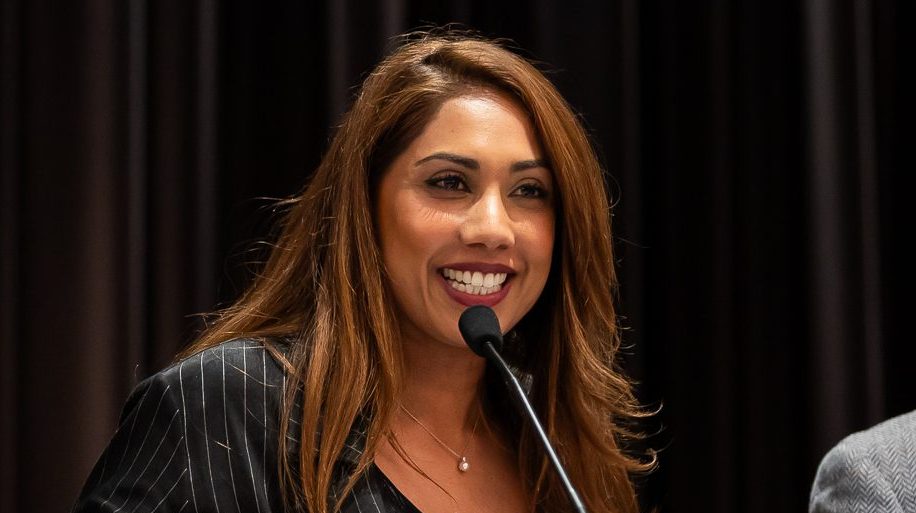
Latika Bourke

Latika Bourke
Latika M Bourke is The Nightly’s Writer-at-Large in London, specialising in geopolitics and is an Expert Associate at the Australian National University’s National Security College. She spent eight years in the Canberra press gallery and previously worked for The Sydney Morning Herald, ABC and 2UE. Latika hosts Latika Takes: The Podcast.
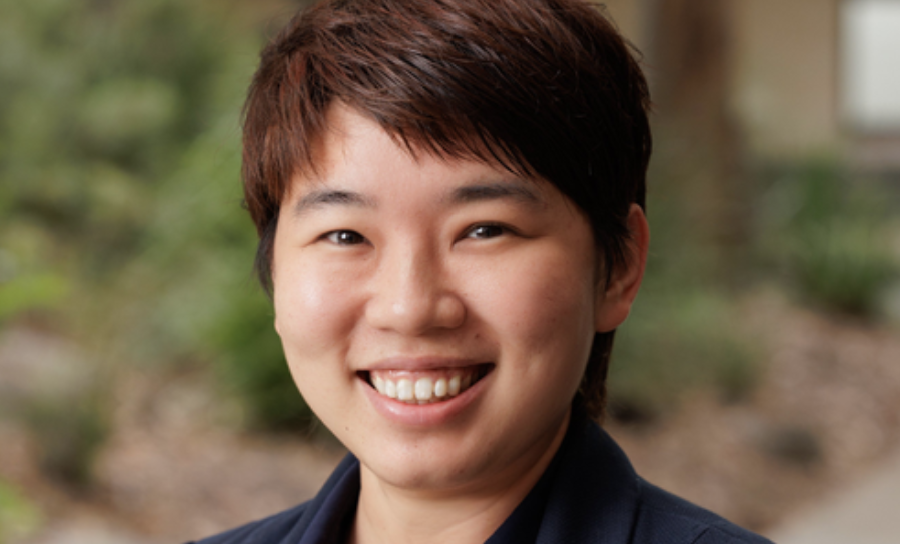
Dr Connie Cai-Ru Gan

Dr Connie Cai-Ru Gan
Dr Connie Gan is a planetary health lecturer-researcher-practitioner at the Griffith University’s School of Medicine and Dentistry, and an associate investigator at the Australian Research Council (ARC) Centre of Excellence for the Elimination of Violence against Women (CEVAW). Her research focuses on future-proofing hospitals by collaborating with healthcare facilities and communities across Asia to examine the health and socio-economic impacts of environmental changes. She evaluates adaptation strategies and explores ways to reorient health services during disasters and exogenous shocks. Dr. Gan has consulted for the World Health Organization (WHO) Centre for Health Development, contributing to the development of the Health Emergency and Disaster Risk Management (Health EDRM) Knowledge Hub. As sustainability coordinator for the Health-Promoting Hospitals (HPH) and Environment Task Force and co-lead of the HEAL Observatory Knowledge Exchange, she promotes diverse knowledge cultures and solutions to build inclusive and climate-ready healthcare.
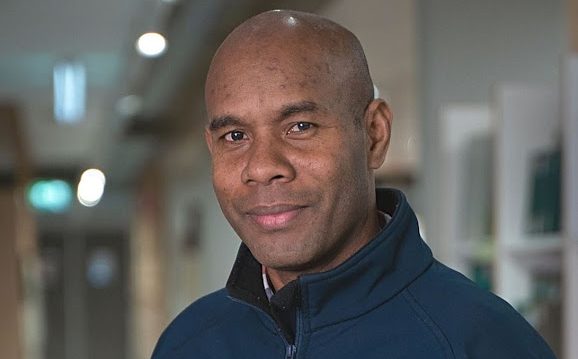
Priestley Habru

Priestley Habru
Priestley Habru is currently a PhD Candidate at The University of Adelaide researching Public Diplomacy and its implication in the Pacific. He has a Master of Arts in Global Media from The University of Adelaide in July 2019 under an Australian Awards Scholarship. Also completed a Postgraduate Certificate in Gender Studies from the University of the South Pacific in Suva, Fiji, under the Australian Awards Pacific Scholarship. Attained a Bachelor of Arts Majoring in Journalism, Language and Literature from the University of the South Pacific under a New Zealand Government funded scholarship. He is journalist by profession having worked in Solomon Islands for over 15 years before embarking on his PhD studies in October 2022.
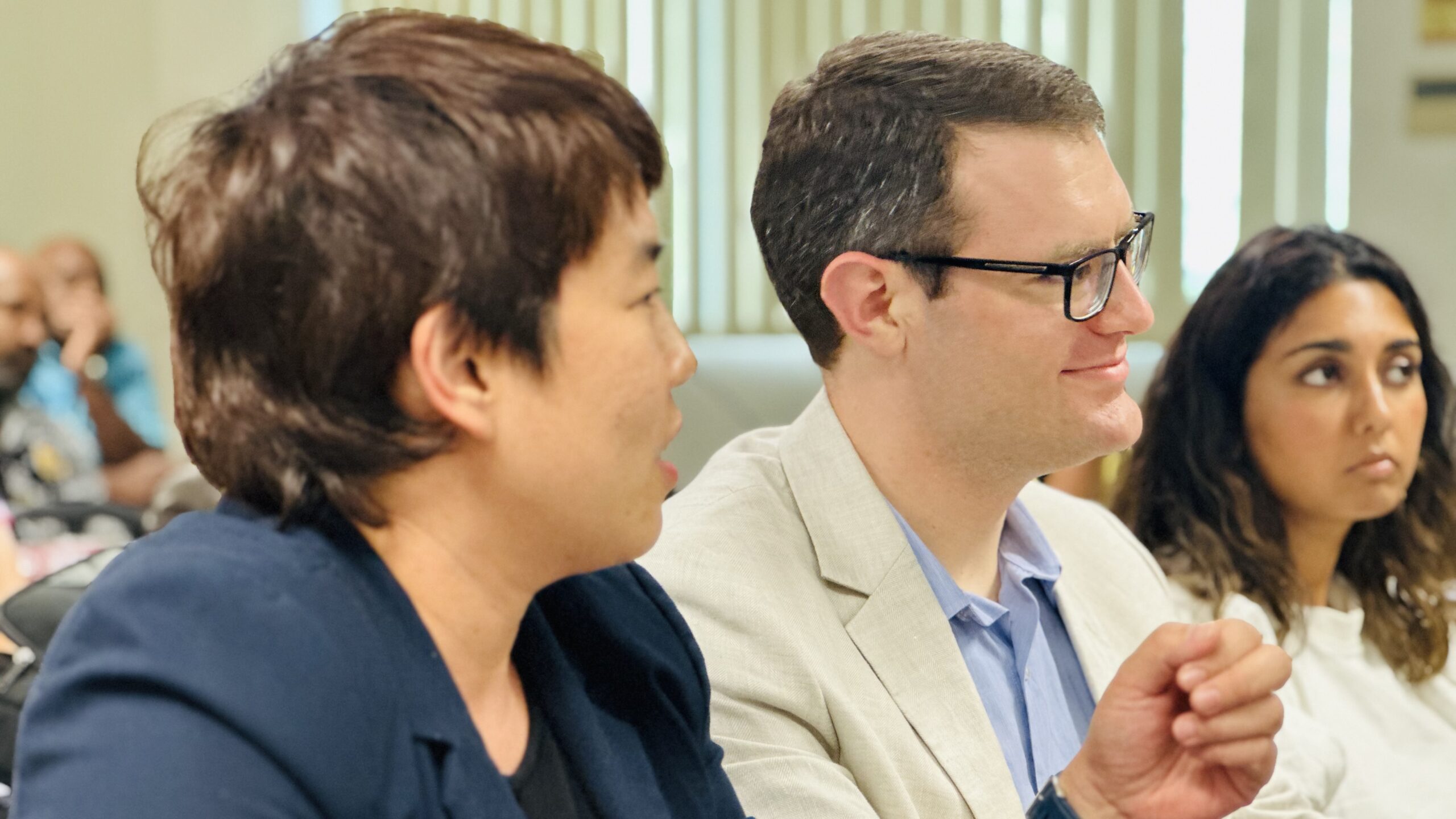
Christopher Heard

Christopher Heard
Christopher Heard is Assistant Director, Security and Emergency Management, Department of Premier and Cabinet, Tasmania. He is a disaster risk reduction and emergency management policy expert, with a particular interest in disaster risk finance and governance. He studied economics at Northwestern University and the University of Queensland and is based in Hobart, Tasmania.
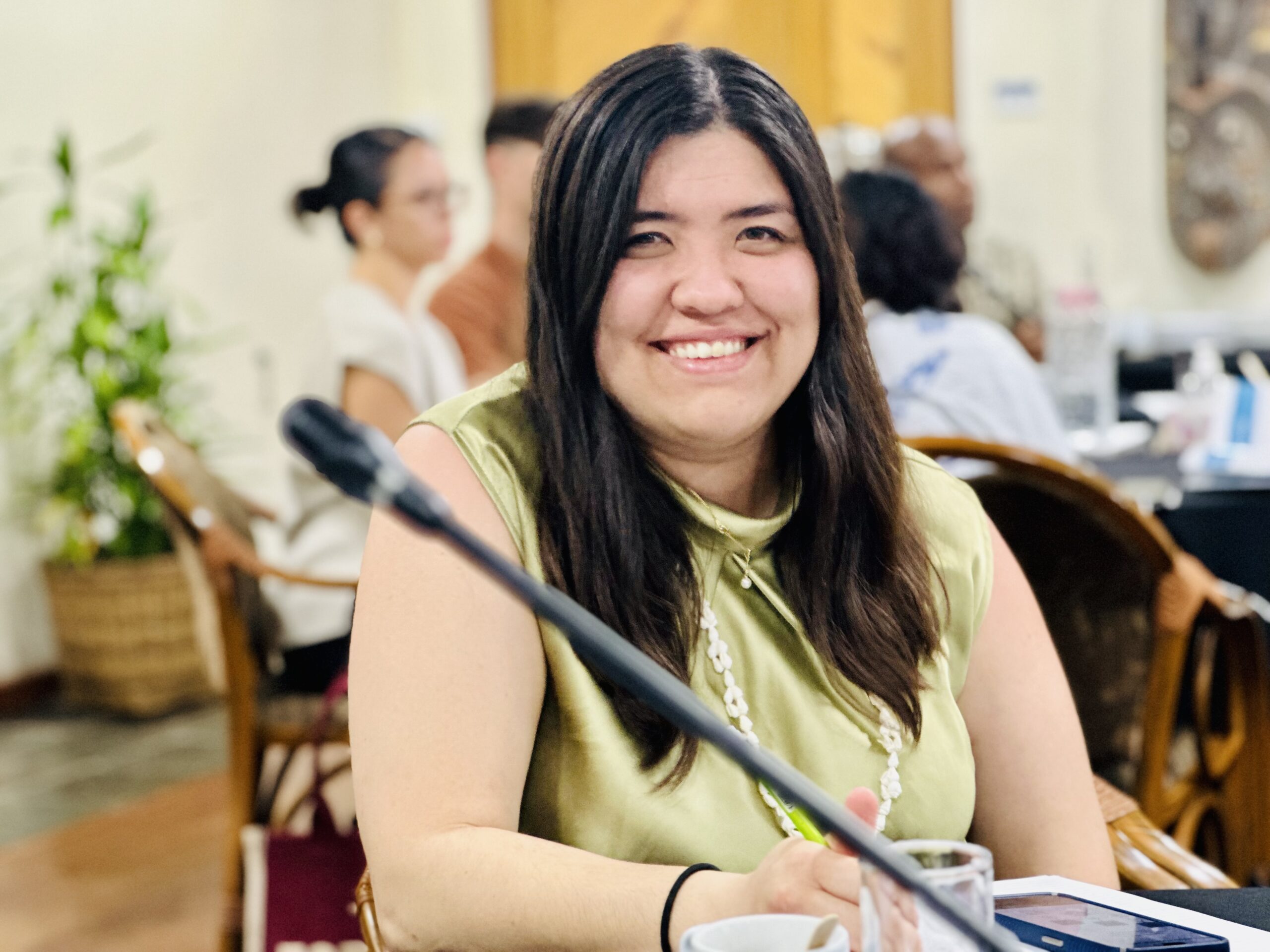
Eleanor Shiori Hughes

Eleanor Shiori Hughes
Eleanor Shiori Hughes is a Research Assistant at the Center for Strategic and Budgetary Assessments in Washington DC. Her research and work focus on U.S. force structure and defense trends in the Indo-Pacific region, particularly in Japan, Taiwan, and Australia.
Prior to joining CSBA, Eleanor was a Defense Analyst at The Asia Group (TAG), where she supported the firm’s defense and aerospace practice by researching industry and complex geopolitical dynamics unfolding across various markets. She has also worked at the Asia Society Policy Institute, the Center for Strategic and International Studies’ Japan Chair, and the Institute for the Study of Diplomacy at Georgetown University.
Eleanor is a member of the Pacific Forum’s Young Leaders Program, the International Institute for Strategic Studies (IISS), the Council on Foreign Relations’ Young Professionals Program, and The Australian American Leadership Dialogue’s Young Leadership Dialogue.
Eleanor holds an M.A. in Asian Studies from Georgetown University’s Walsh School of Foreign Service and a B.A. in History from Saint Mary’s College in Notre Dame, IN. She speaks Japanese.

Dr Kiriloi Ingram

Dr Kiriloi Ingram
Dr Kiriloi M. Ingram is a Lecturer, School of Political Science and International Studies, University of Queensland. Previously she was a postdoctoral research fellow with the Australian Graduate School of Policing and Security at Charles Sturt University working on the Contemporary Threats to Australian Security (CTAS) project. She received her doctorate in Political Science at the University of Queensland in 2022. Her research analyses on the role of gender in non-state politically motivated violent group’s propaganda and politico-military strategies, and her thesis analysed how and why Islamic State propaganda constructs and manipulates gender to target and appeal to transnational audiences. She has published extensively with international forums, including the International Centre for Counter Terrorism at The Hague, Lawfare, VOX-Pol, ABC Australia, and the Australian Institute for International Affairs, as well as in high ranking academic journals including ‘Terrorism and Political Violence’ and ‘Journal for Deradicalization’ She regularly presents her research at national and international conferences to academic, government, and industry audiences such as at the Centre of Excellence for National Security Workshop of S. Rajaratnam School of International Studies (Singapore), Australian Political Studies Association Conference (Australia), Terrorism and Social Media Conference (United Kingdom), and Charles Sturt University’s Terrorism Masterclasses. In 2019, Kiriloi was recognised and appointed as a Pacific Forum Young Leader, and in 2022 Kiriloi was recognised in the Top 25 Young Women to Watch in International Affairs. Kiriloi also holds a Bachelor of Arts with an extended major in Political Science from UQ, and a Bachelor of International Security Studies with Honours from the Australian National University. Professionally, Kiriloi has supported gender sensitive peacebuilding and P/CVE programme development in Mindanao, Southern Philippines, Raqqa, Syria, Indonesia, Bangladesh. Her work aims to equip and empower local women to develop their own strategies to build meaningful peace in their local communities.

Daweena Tia Motwany

Daweena Tia Motwany
Daweena Tia Motwany is a dedicated professional with a wealth of experience in the non-profit sector. Currently working at PowerHousing Australia as a Senior Policy and Advocacy Advisor, she plays a pivotal role in advancing housing policies and advocating for the needs of community housing providers. Her expertise lies in policy development, stakeholder engagement, and strategic planning, particularly in the realm of social and affordable housing. Previously, Daweena contributed significantly to the Foundation for Alcohol Research and Education (FARE), where she focused on research and policy analysis to promote improved public health outcomes to minimise alcohol harms across Australia. Her work at FARE further honed her skills in creating evidence-based solutions and advocating for policy changes. Passionate about creating inclusive communities, Daweena is also actively involved in mentoring young professionals and advocating for the rights of immigrants, refugees, and displaced people. Her commitment to social justice and equity is evident in her efforts to integrate lived experiences with policy recommendations, aiming to improve outcomes for vulnerable populations.

S. Nanthini

S. Nanthini
S. Nanthini is an Associate Research Fellow in the Humanitarian Assistance and Disaster Relief (HADR) Programme within the Institute of Defence and Strategic Studies at the S. Rajaratnam School of International Studies (RSIS), Nanyang Technological University. She holds a Masters in International Relations (International Security) from the University of Melbourne, and a Bachelor of Arts (Politics and Gender Studies) from La Trobe University
In 2023, Nanthini was recognised and appointed as a Pacific Forum Young Leader. She is also a member of the Australian Institute of International Affairs (AIIA) Indo-Pacific Cooperation Network.
Her research interests include HADR, climate security and the gender and security in the Southeast Asian humanitarian landscape.
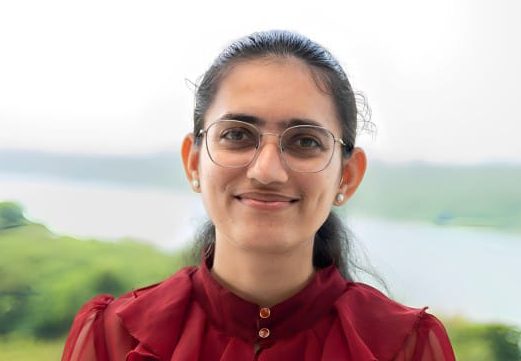
Falguni Tailor

Falguni Tailor
Falguni Tailor is an architect and urban planner with extensive experience in interdisciplinary projects at the intersection of environmental sustainability, urban development, and coastal management. Her work focuses on the convergence of coastal and marine area management with sustainable development. She currently serves as an Assistant Scientific Officer at the Dr Kiran C Patel Centre for Sustainable Development, Indian Institute of Technology Gandhinagar, where she coordinates research, education, and outreach initiatives focused on advancing sustainability goals. Falguni was a member of the 2023 Global Judging Committee for Solving for Humanity, a global youth challenge on human development organized by Duke University. As an Urban Planner in the World Bank-funded project on the the “Preparation of Integrated Coastal Zone Management Plan and Shoreline Management Plan for Odisha,” she collaborated with government agencies, academic institutions, and local communities to promote integrated coastal governance. She has actively presented her work at national and international platforms on themes including Integrated Coastal Zone Management (ICZM), Blue Economy, and Sustainable Development. Falguni holds a Bachelor of Architecture from Jadavpur University, a Master of City Planning from Indian Institute of Technology Kharagpur, and is currently pursuing a PhD in Earth Sciences Department at the Indian Institute of Technology Gandhinagar.
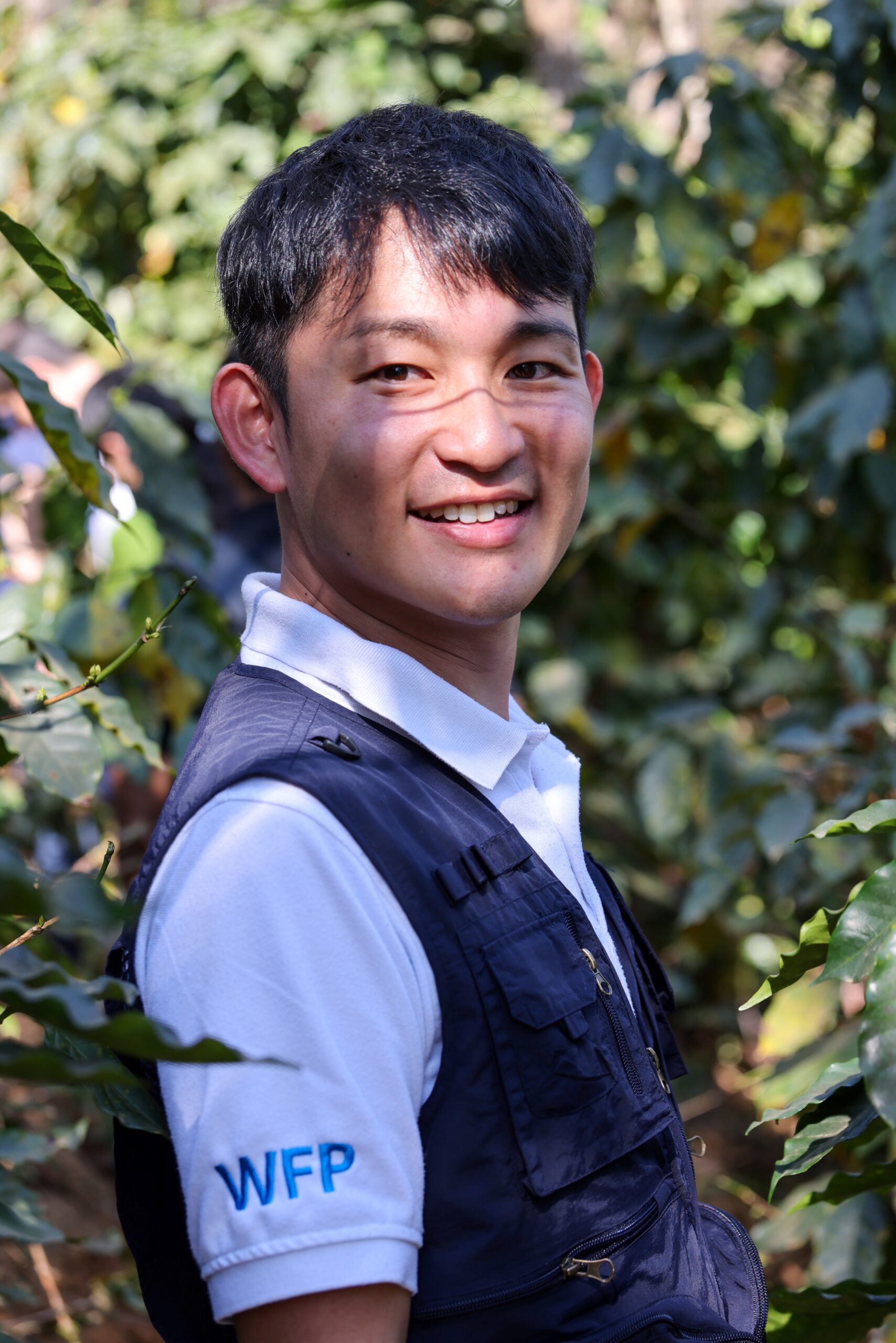
Ryoya Tasai

Ryoya Tasai
Ryoya Tasai currently works for the United Nations World Food Programme (WFP) in Lao PDR, where he manages projects focusing on nutrition and resilience activities aimed at preventing and mitigating the effects of climate shocks. Prior to his current position, Ryoya worked for the Resilience Unit of WFP Malawi, where he contributed to resilience-building initiatives. He has also held positions with international NGOs in Japan, Paraguay, and Sudan, working on a variety of development and humanitarian projects. Additionally, Ryoya contributed to a Japanese startup, where he created fundraising campaigns and supported over 200 crowdfunding projects, primarily for international NGOs. Ryoya holds an MA in Development Studies from the Institute of Development Studies at the University of Sussex. His contributions to global development and humanitarian work were recognized in Newsweek Japan’s “30 Japanese Who Contribute to the World” in 2021.
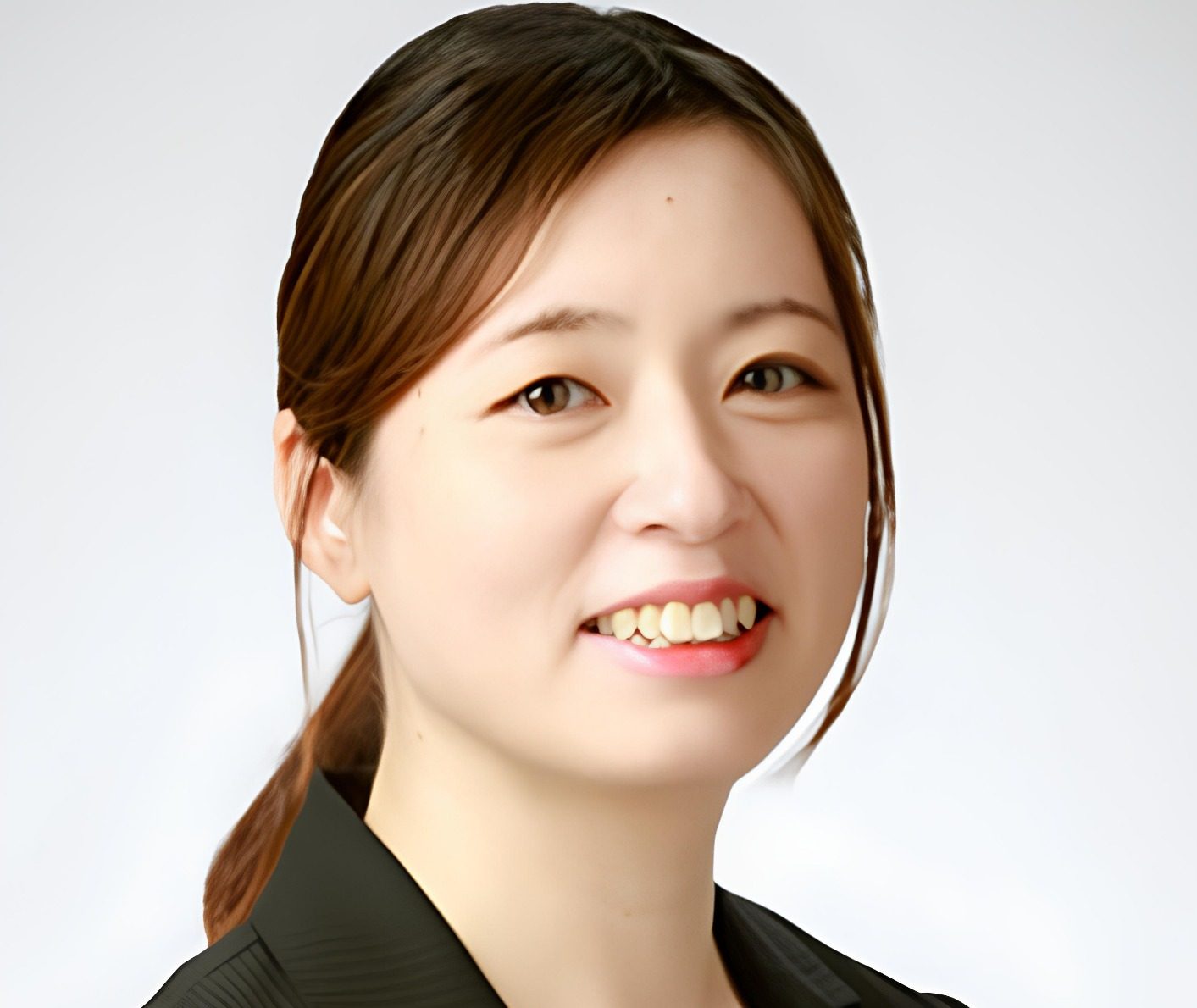
Dr Ai Tashiro

Dr Ai Tashiro
Dr Ai Tashiro is an associate professor at Graduate School of Human and Environmental Studies, Kyoto University. Her research focuses on health geography and disaster epidemiology. She is actively involved in transdisciplinary education and research for graduate students at the university. Ai received her Ph.D. in Environmental Studies from Tohoku University. She is a transdisciplinary scientist specializing in disaster risk reduction and human health and well-being. Her research interests include community perceptions of human health and behavioral change through nature-based solutions (NbS), known as Eco-DRR for nature-based solutions. She has conducted both domestic and international disaster research, including the Great East Japan Earthquake and Tsunami (GEJET) in 2011. Her research primarily involves geospatial epidemiology, social surveys, and statistical analyses in collaboration with global research institutions.
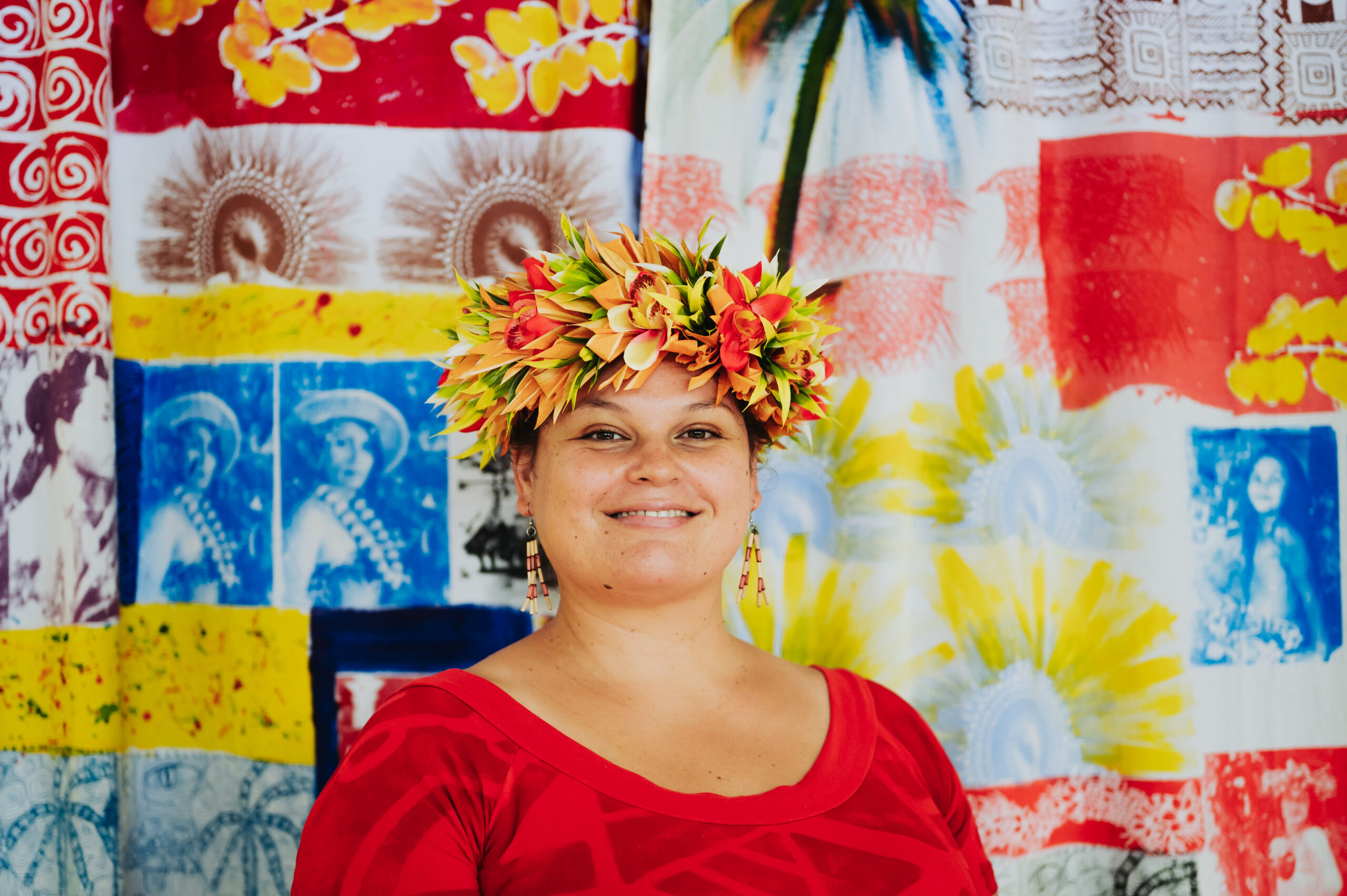
Merita Tuari’i Wi-Kaitaia

Merita Tuari’i Wi-Kaitaia
Merita Tuari’i Wi-Kaitaia is of Cook Islands Māori and New Zealand Māori heritage, currently working as a senior research fellow at specialization Puna Vai Mārama. She has a Bachelor of Arts in Japan Studies from the University of Otago and a Master of Science in Asia Pacific Studies (International Relations specialization) from Ritsumeikan Asia Pacific University. She has lived, studied and worked in Japan at different points in her life, and interned at the Sasakawa Peace Foundation in 2019. She has previously worked in government and non-government roles in the Cook Islands, including consulting on the review of the Cook Islands National Sustainable Development Plan 2016-2020. At TPVM she conducted research on knowledge and use of climate and weather information and services, co-authored a paper on the Cook Islands response to COVID19, and is currently conducting research on gender and governance in the Cook Islands, and public experience and use of Cook Islands public services.
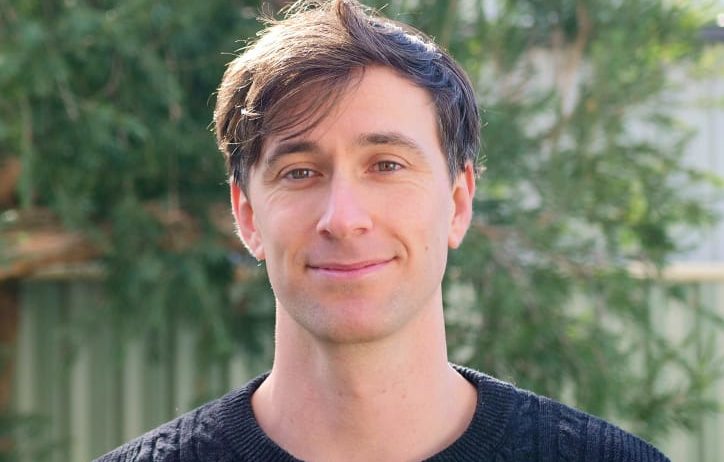
Gabriel Scomazzon Ward

Gabriel Scomazzon Ward
Gabriel Scomazzon Ward has been actively engaged in disaster risk reduction and emergency management across volunteer and professional sectors, ranging from VICSES and the Australian Red Cross to state and Federal government recovery agencies. Throughout his career, Gabriel has led recovery initiatives aimed at helping communities rebuild after the 2019-20 bushfires, operated on the frontlines of the June 2021 storms and floods, supported New Zealand in the wake of TC Gabrielle, and as of 2023 helped to coordinate the largest Australasian deployment of personnel to North America in history. He has also lived and worked abroad in the Indo-Pacific, as a former New Colombo Plan recipient. Gabriel is currently working as a Coordination & Planning Officer for the National Emergency Management Agency (NEMA), the Commonwealth disaster response agency.
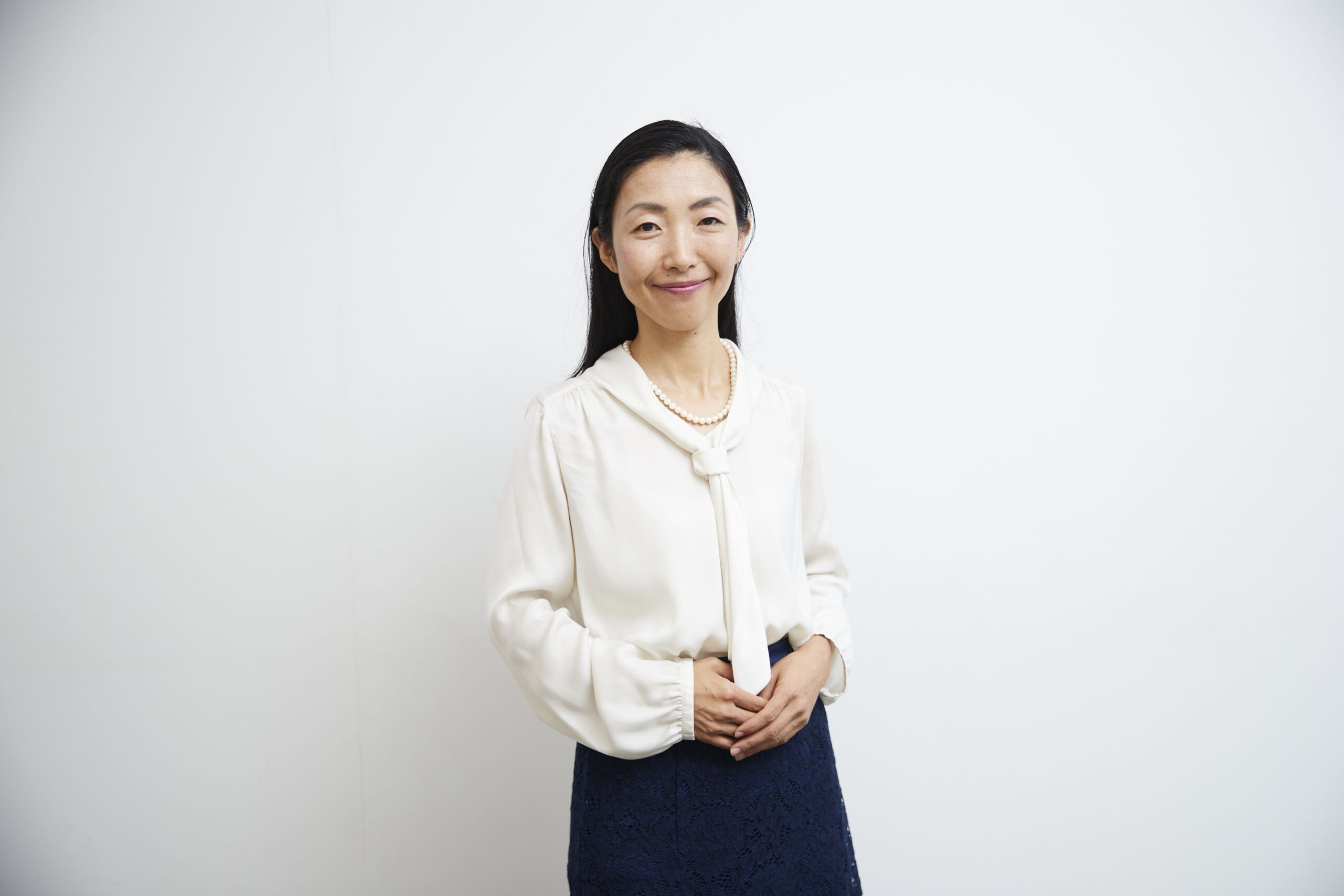
Professor Yoshida Honami

Professor Yoshida Honami
Dr Honami Yoshida is currently a Professor at the Graduate School of Health Innovation at Kanagawa University of Human Services. Before this, Honami served as a Senior Project Leader of the Health Promotion Division at Kanagawa Prefectural Government (2017) and as a Senior Researcher at the Department of Health Promotion at the National Institute of Public Health, Japan (2012-2016). She was also a maternal and childcare project leader in the Disaster Support Project of the Great East Japan Earthquake (2011-2012) and a Research Fellow at the Department of Society, Human Development & Health, Harvard School of Public Health in the U.S. (2010-2012). As a clinical experience, she achieved brilliant success over ten years as an OB/GYN Doctor at St. Luke’s International Hospital in Japan. Honami also had rich experience abroad as an attendee of general practitioner at the Beechcroft Medical Centre in London, UK (2005) and as a GastÄrztin (Guest doctor) of Gyn.-Team Süd in Frankfurt, Germany (2004). She earned her M.D. in 1998 from the University of Mie and her Ph.D. in Medicine (Molecular Biology) in 2004 from Nagoya University Graduate School of Medicine. As there is no limit to her motivation to study, she has also a Master of Public Health (Quantitative Methods) in 2010 from HSPH. She was awarded the Abe Fellowship for the Social Science Research Council in New York, U.S. (2010).
The Indo-Pacific Cooperation Network is an initiative by the Australian Institute of International Affairs and the Japan Foundation. The AIIA is grateful for the advice and support it has received from the Japan Foundation throughout this project.
